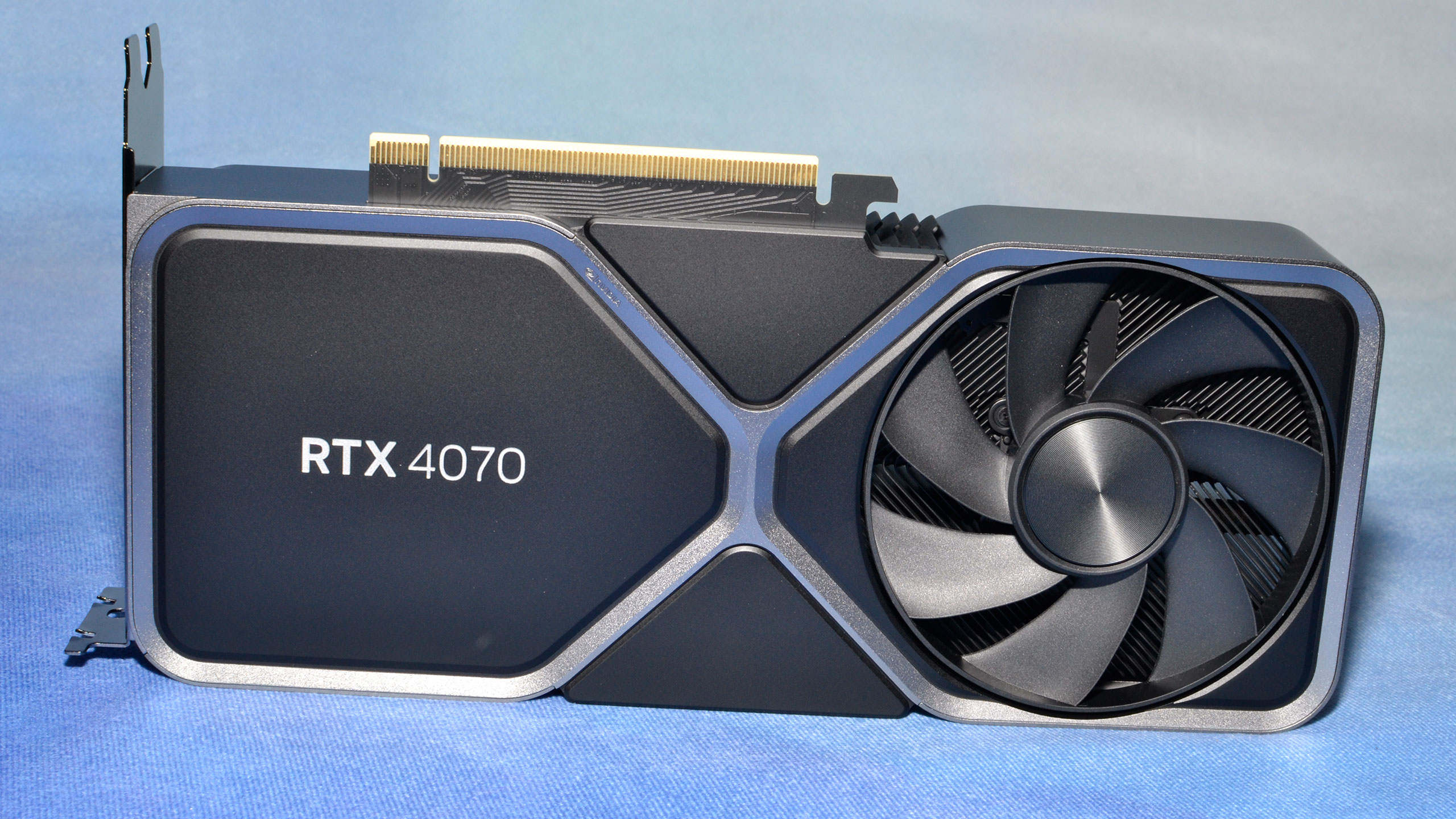Why you can trust Tom's Hardware
Given what we already saw at 1440p ultra, 1080p will deliver much higher performance and at times start to run into CPU bottlenecks. We're not going to go into as much detail on these charts, as we have both "medium" and "ultra" quality comparisons to cover. Most of what we said on the previous page still applies, only the margins tend to shrink with the lower resolution. Let's start with the overall view.
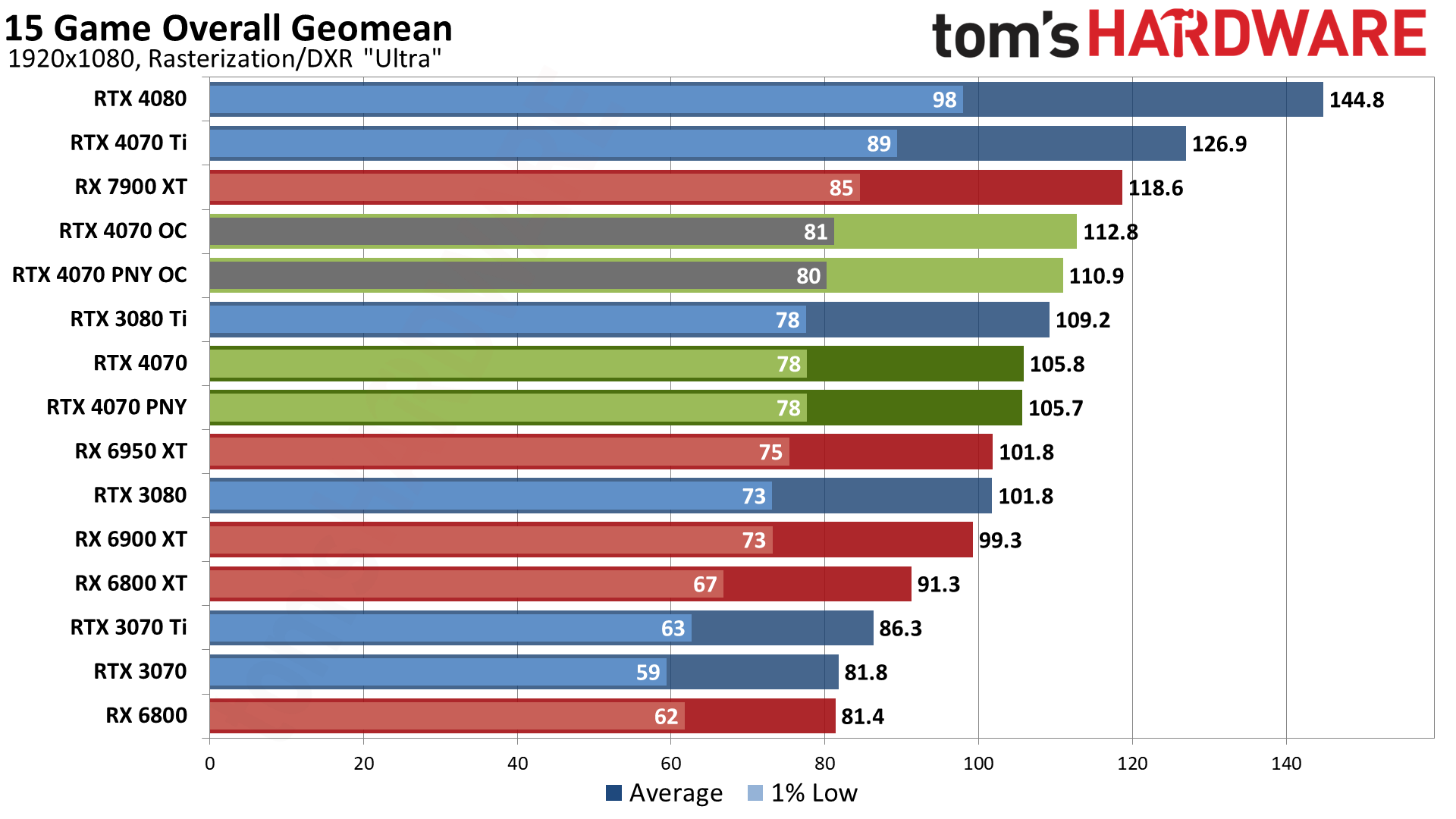
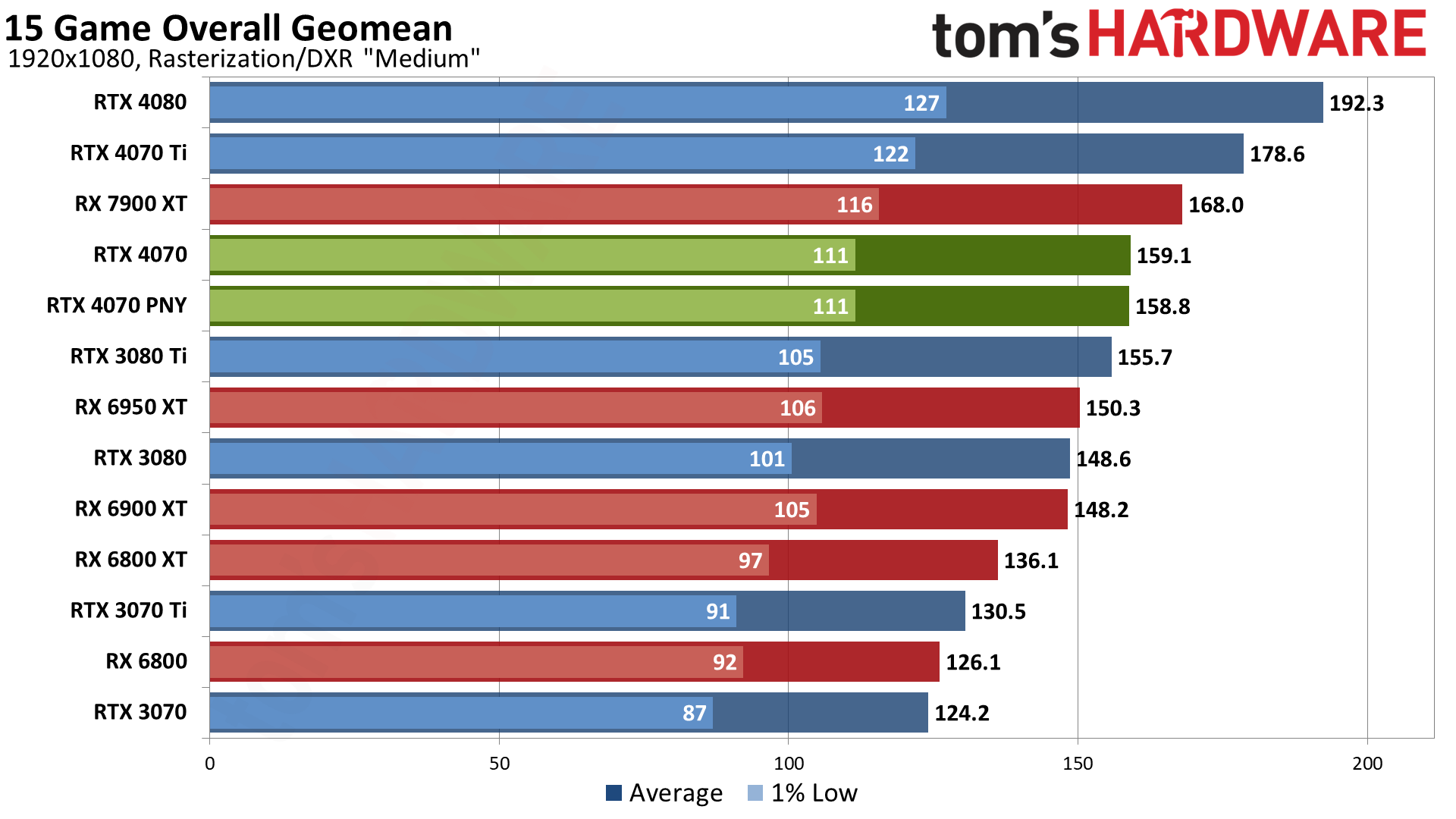
We have two images this time, one for 1080p ultra and one for 1080p medium. Nearly all of the cards maintain their 1440p rankings, with the only exception being the RTX 4070 gaining a couple of slots. The RTX 4070 now ends up a few percent faster than the 3080, and it also edges past the RX 6950 XT — which squeaks past the RTX 3080 as well. That's for the 1080p ultra chart.
Looking at the 1080p medium chart, you can see that the gap from the top to the bottom of the charts shrinks quite a bit at the lower settings. Where the top RTX 4080 was 77% faster than the bottom RTX 3070 at 1080p ultra, it's only 55% faster at 1080p medium. In a similar vein, the RTX 4070 also climbs one more spot and overtakes the RTX 3080 Ti at 1080p medium.
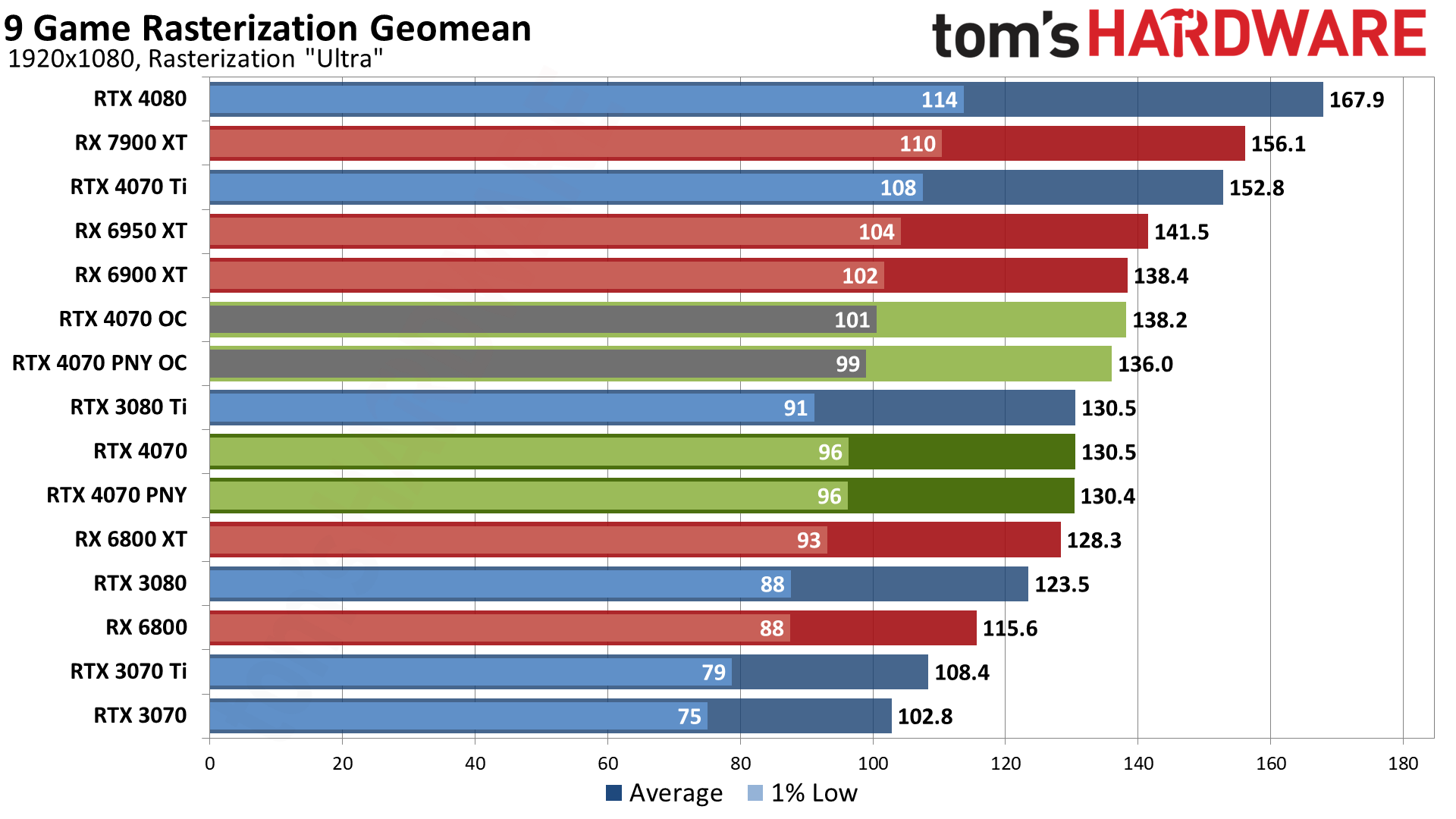
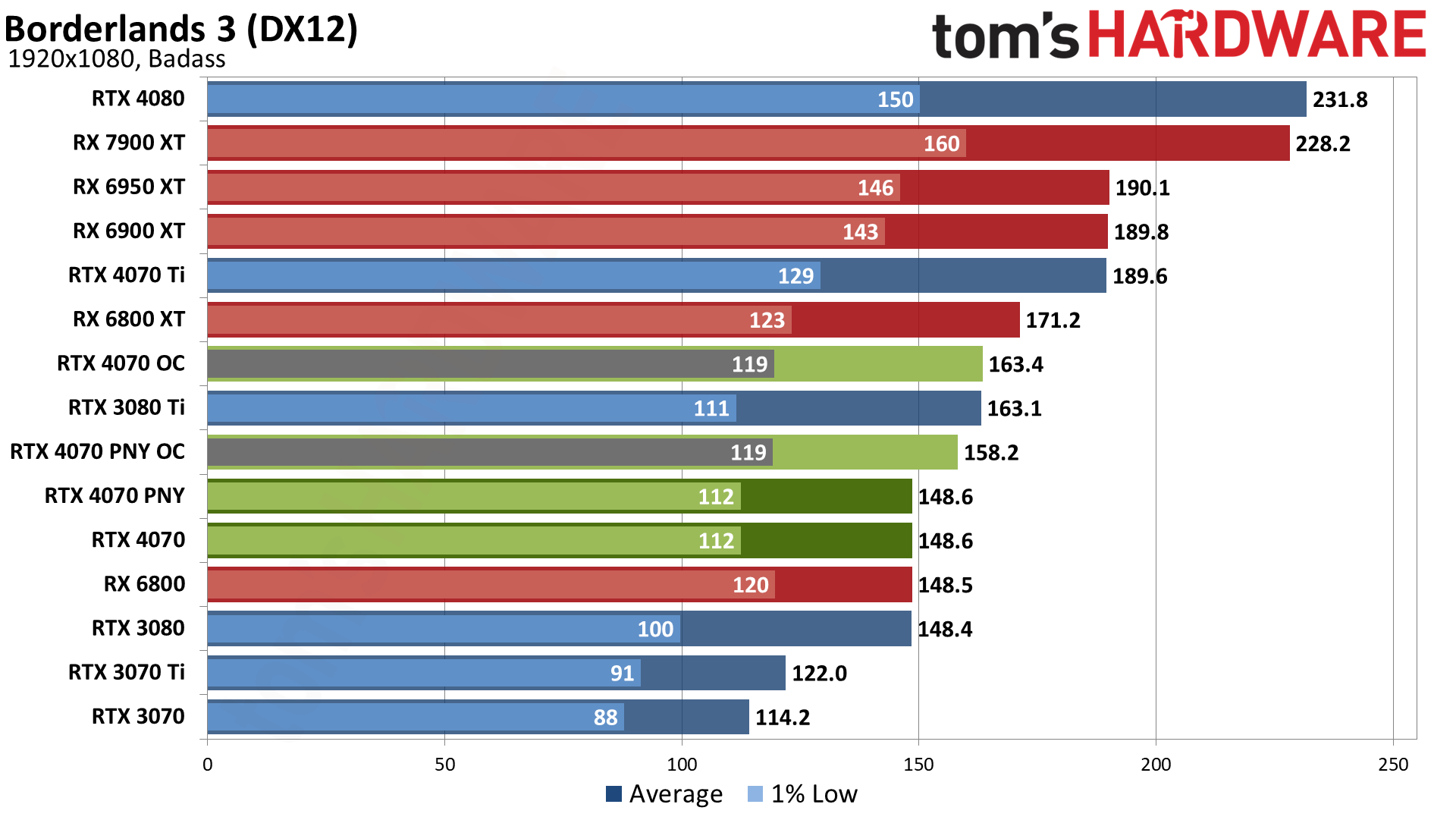
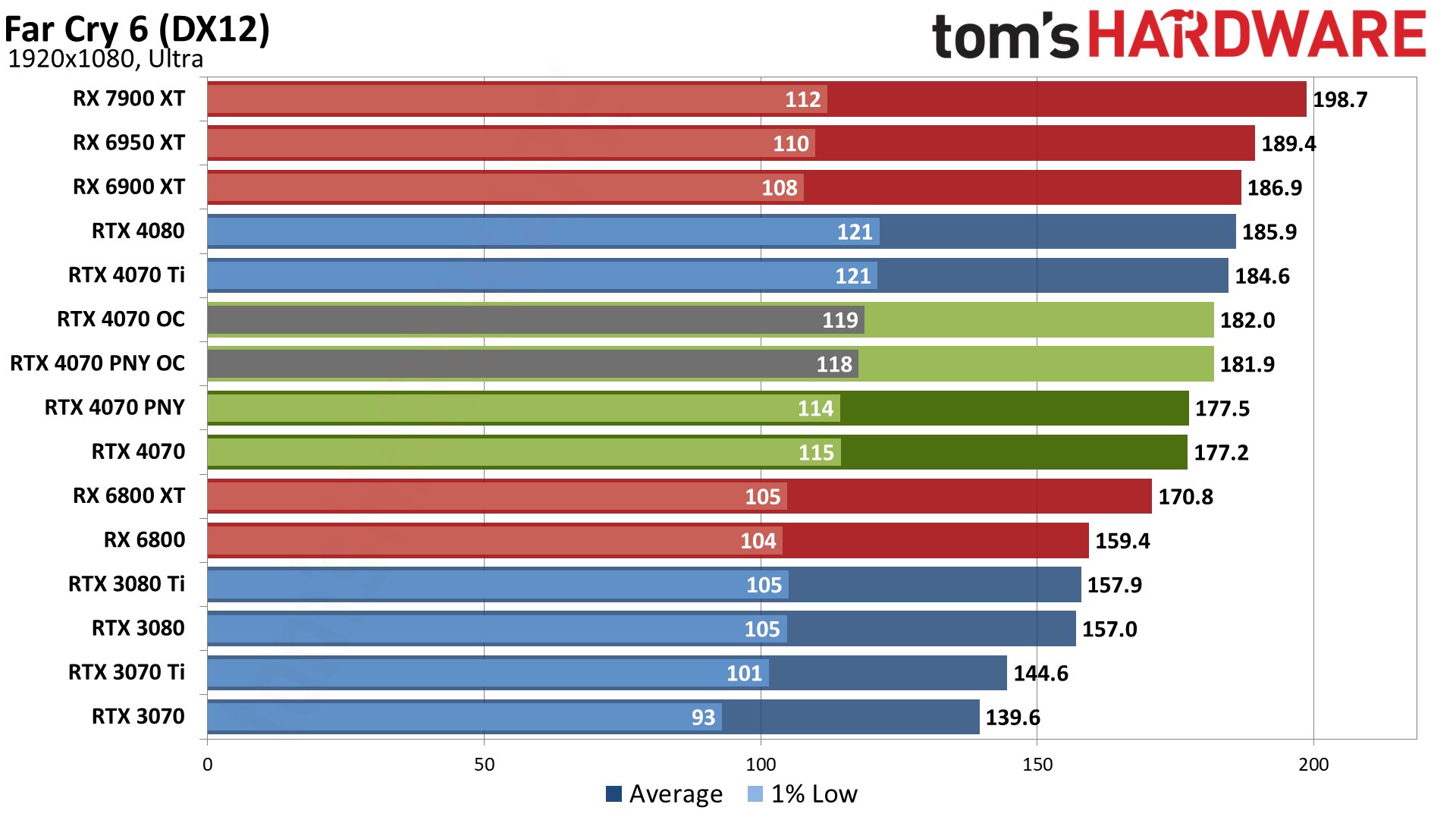
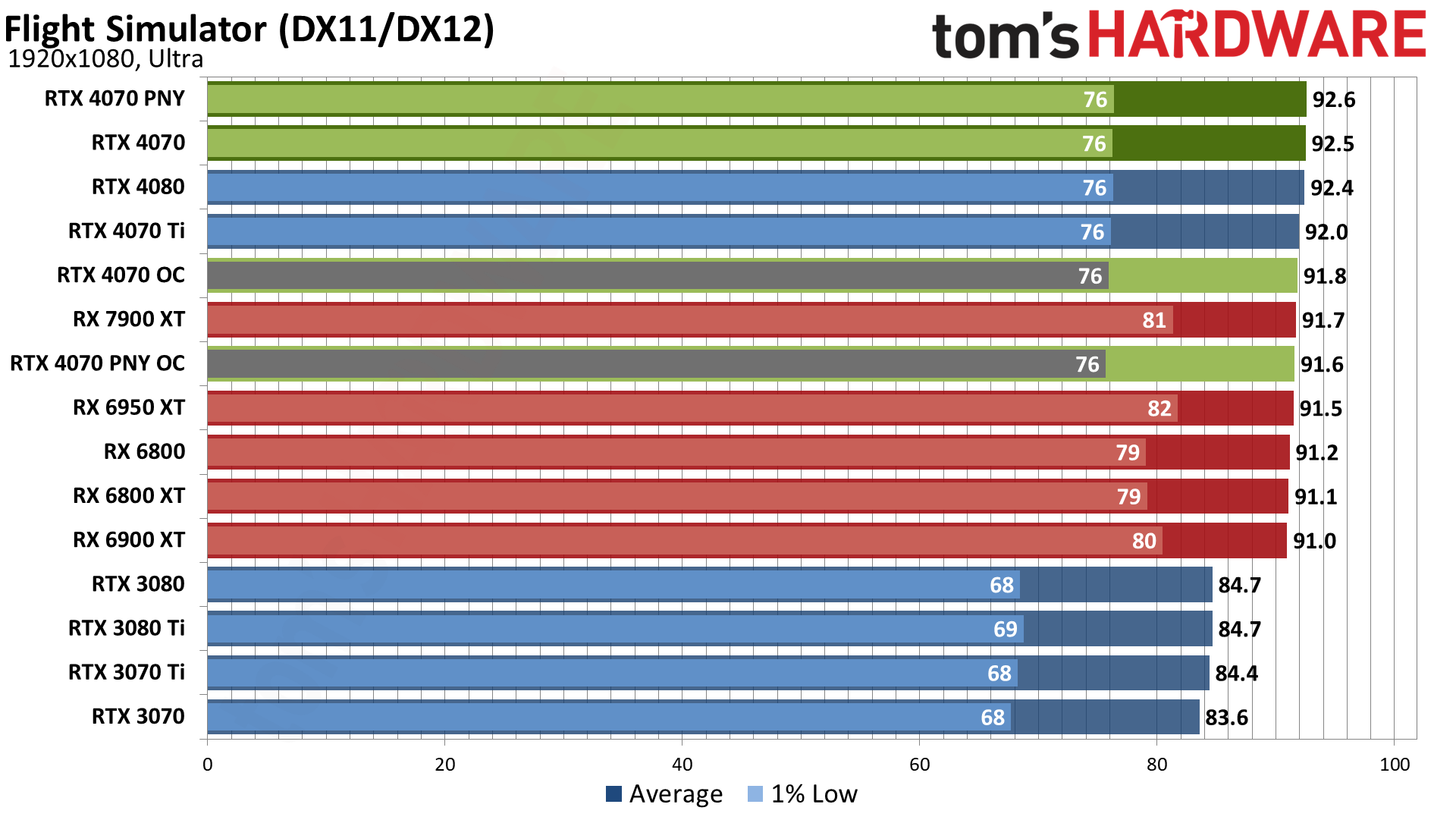
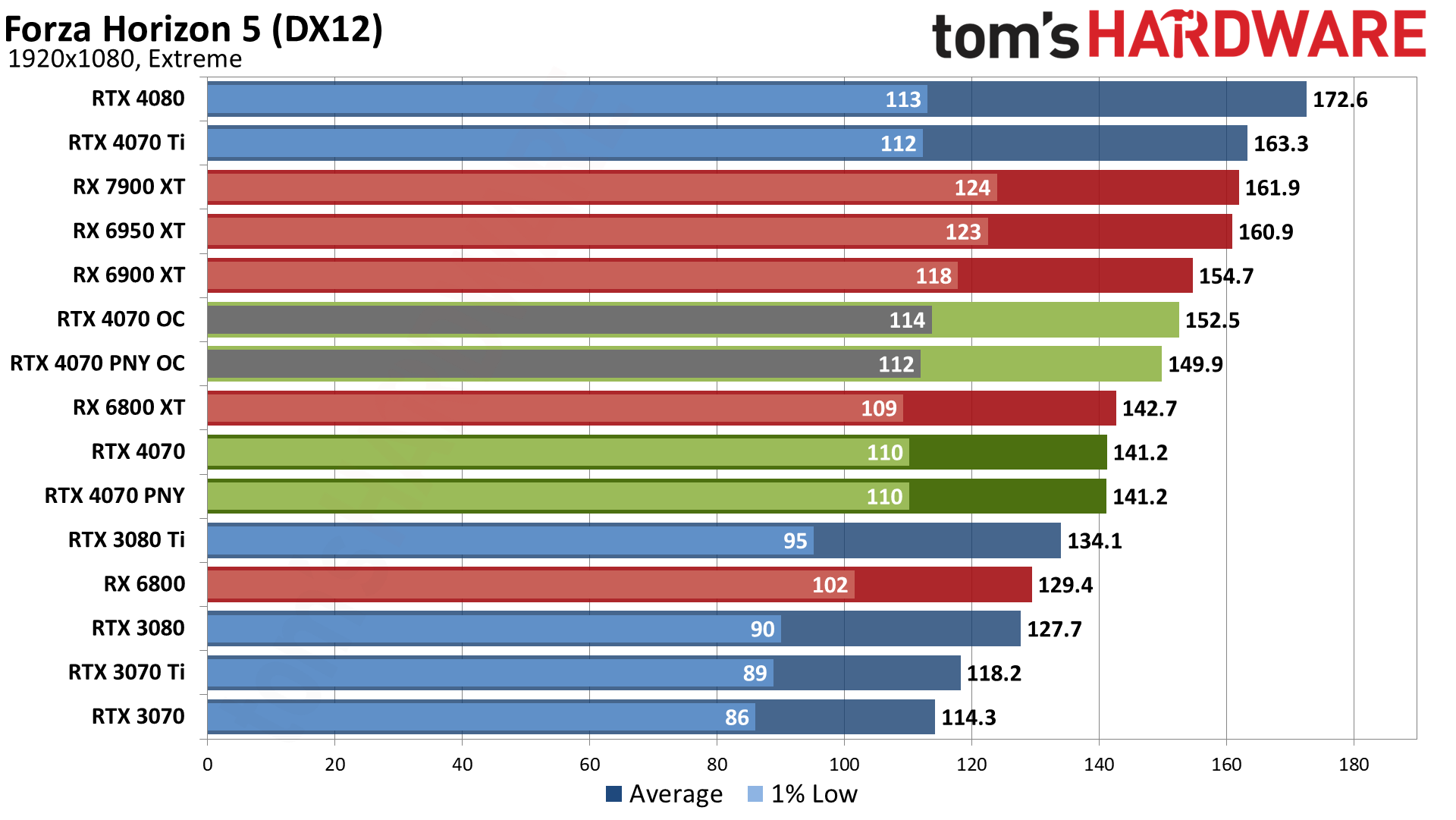
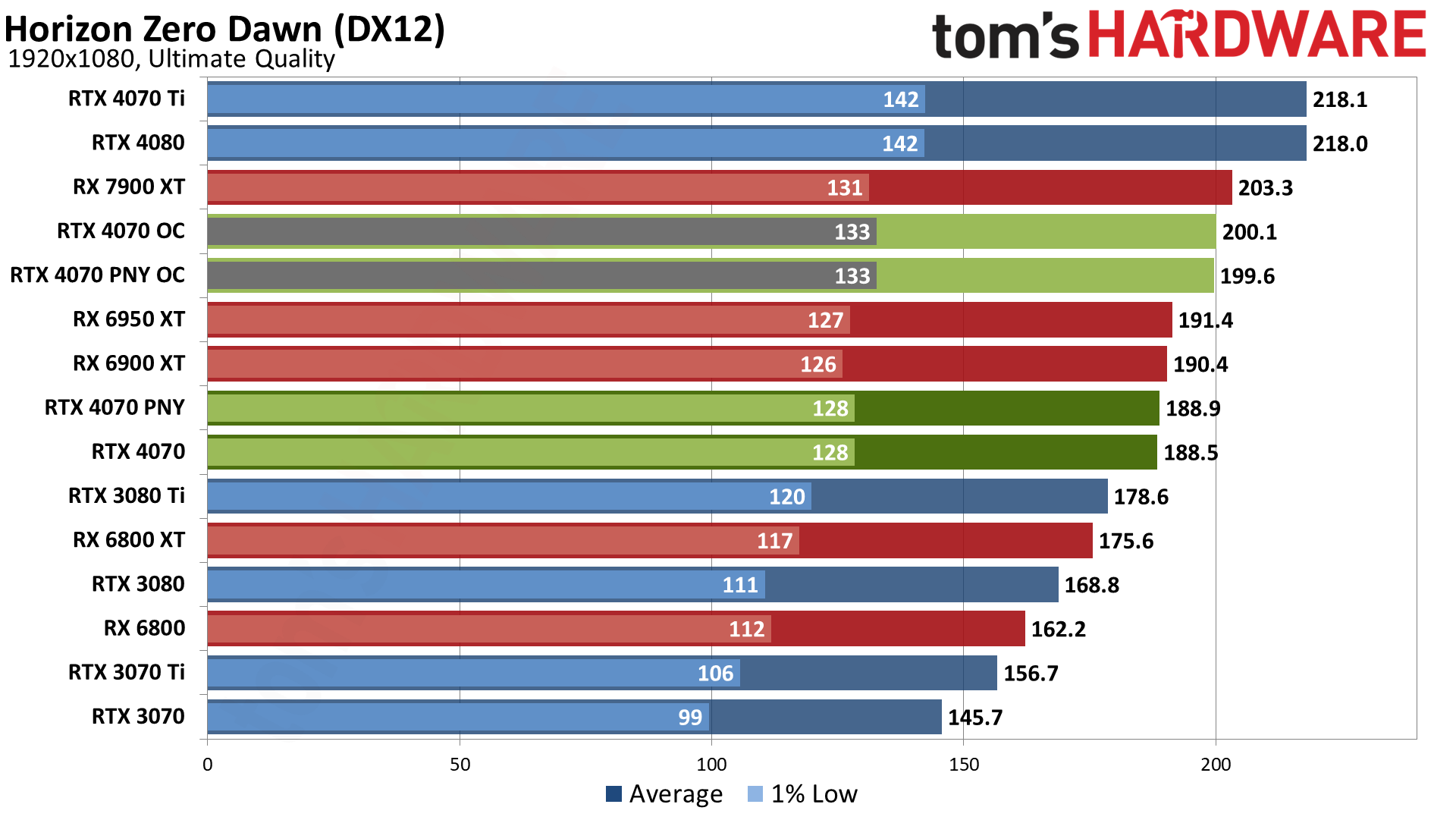
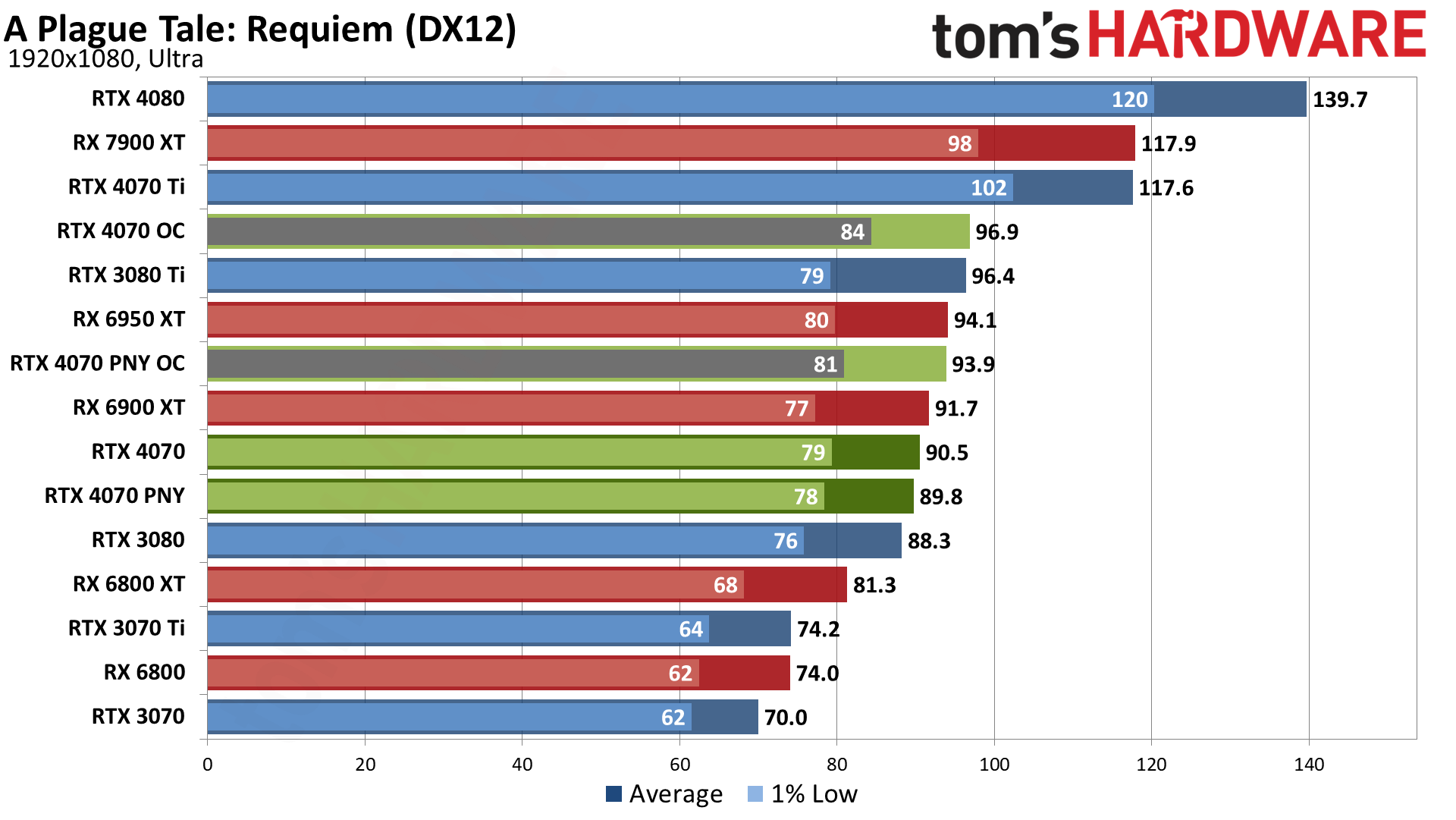
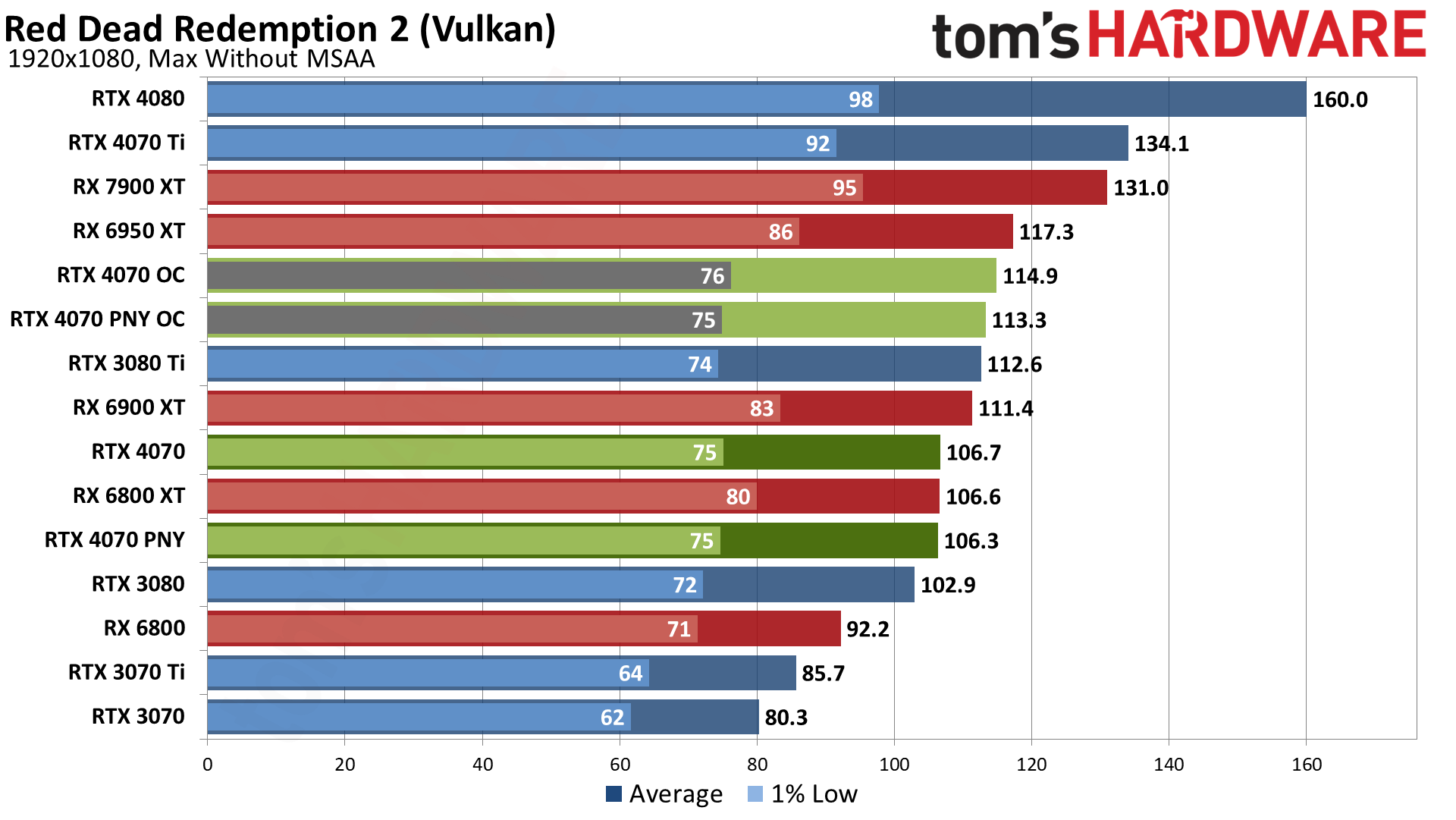
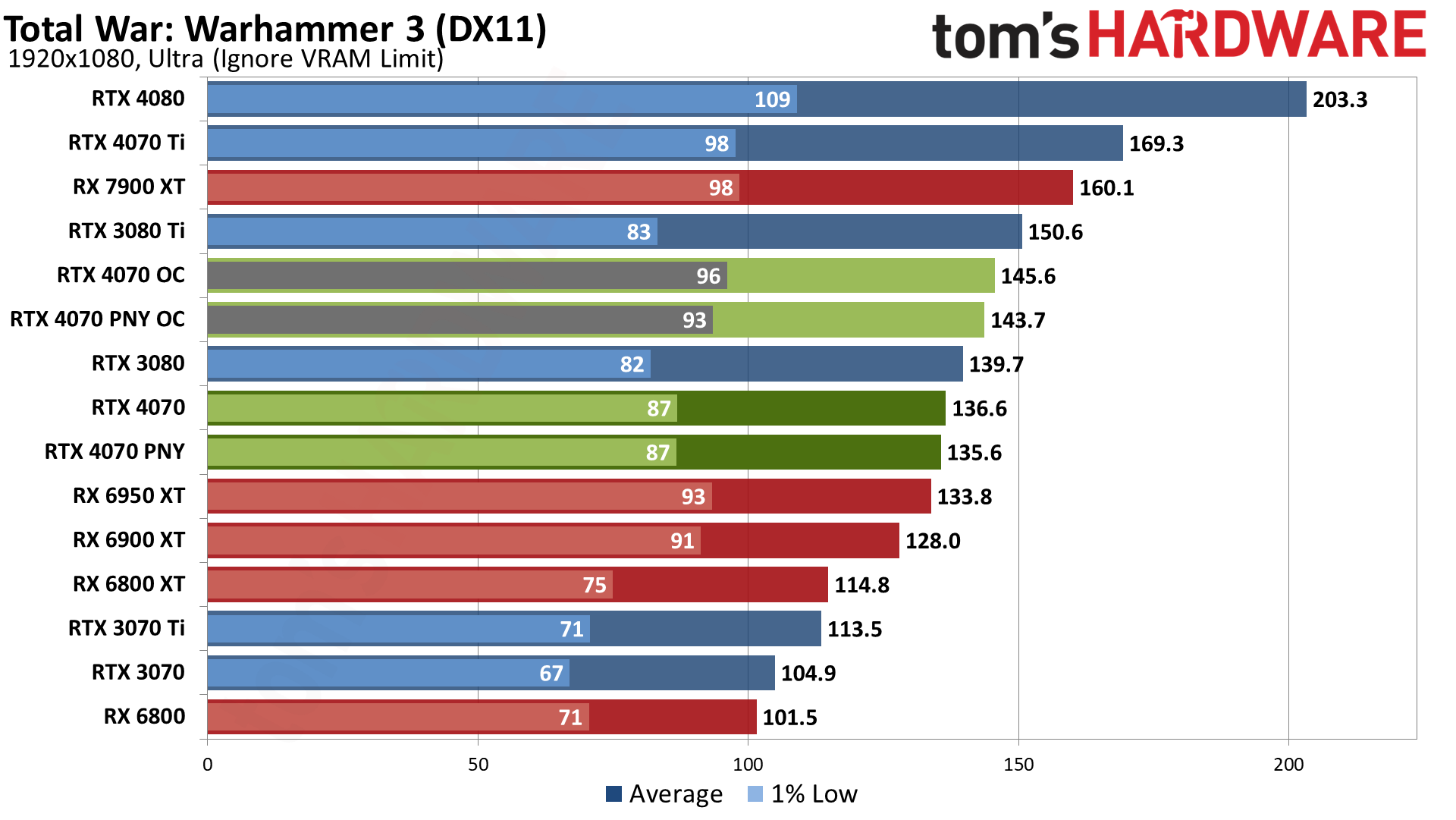
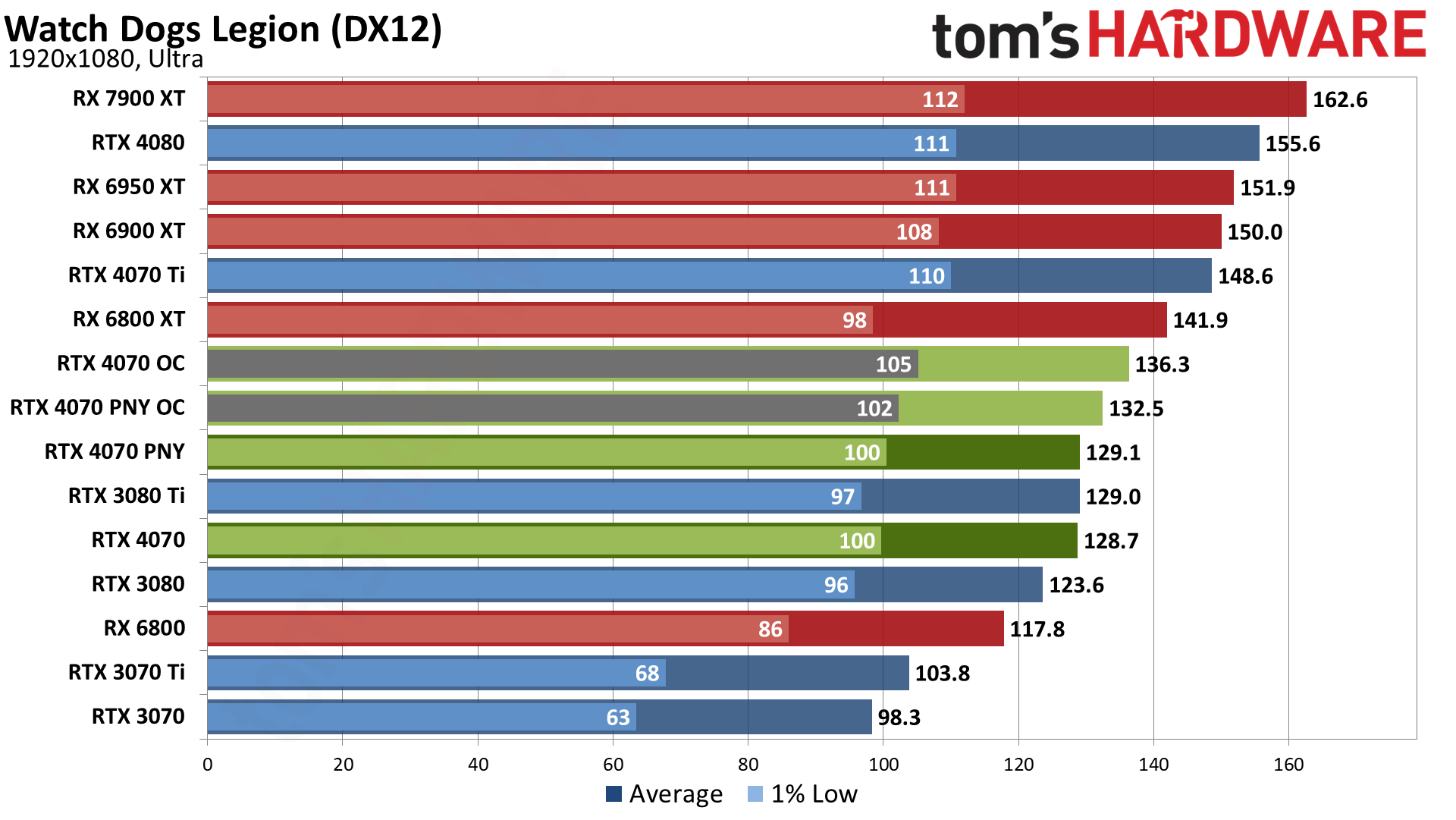
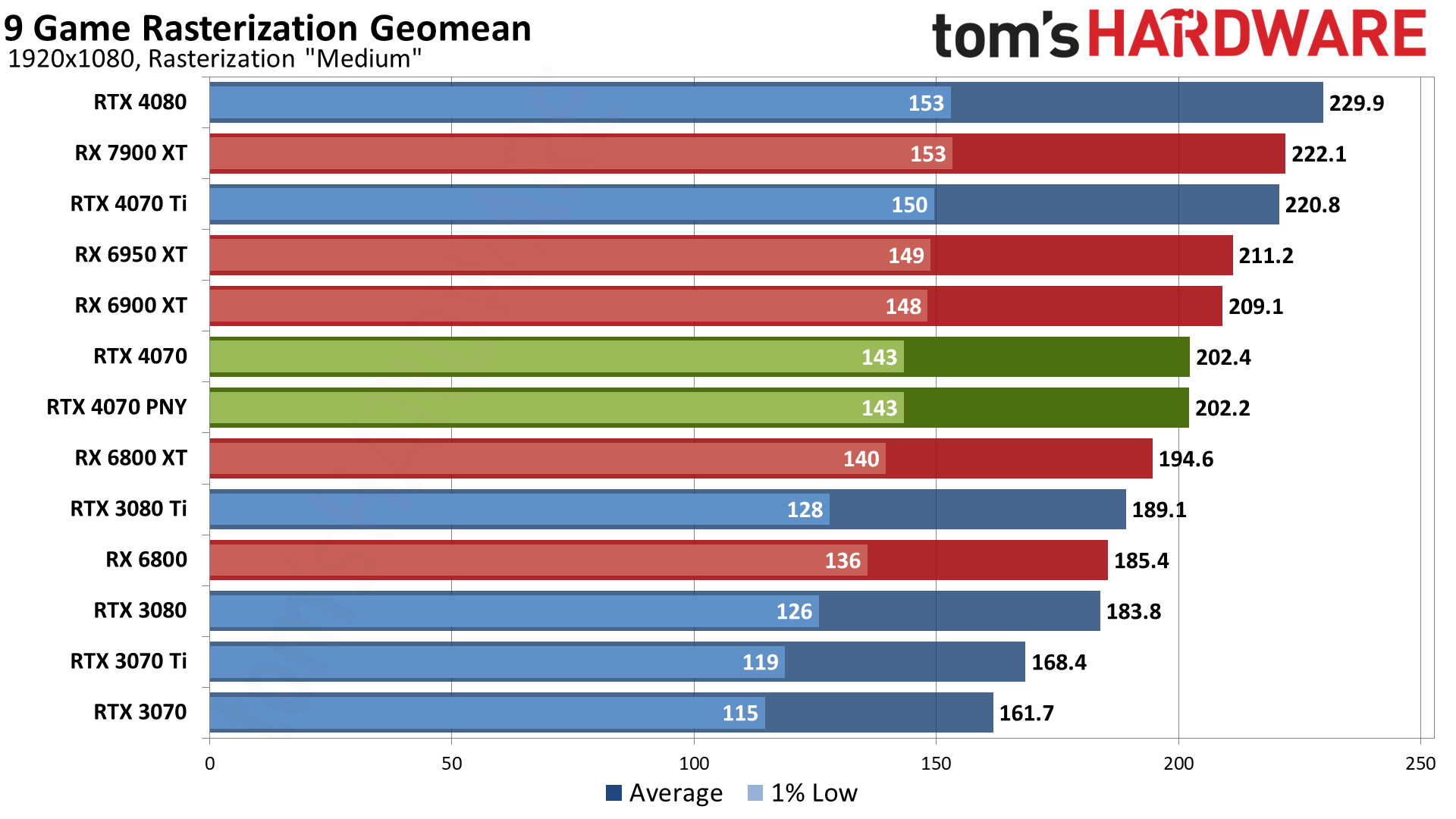
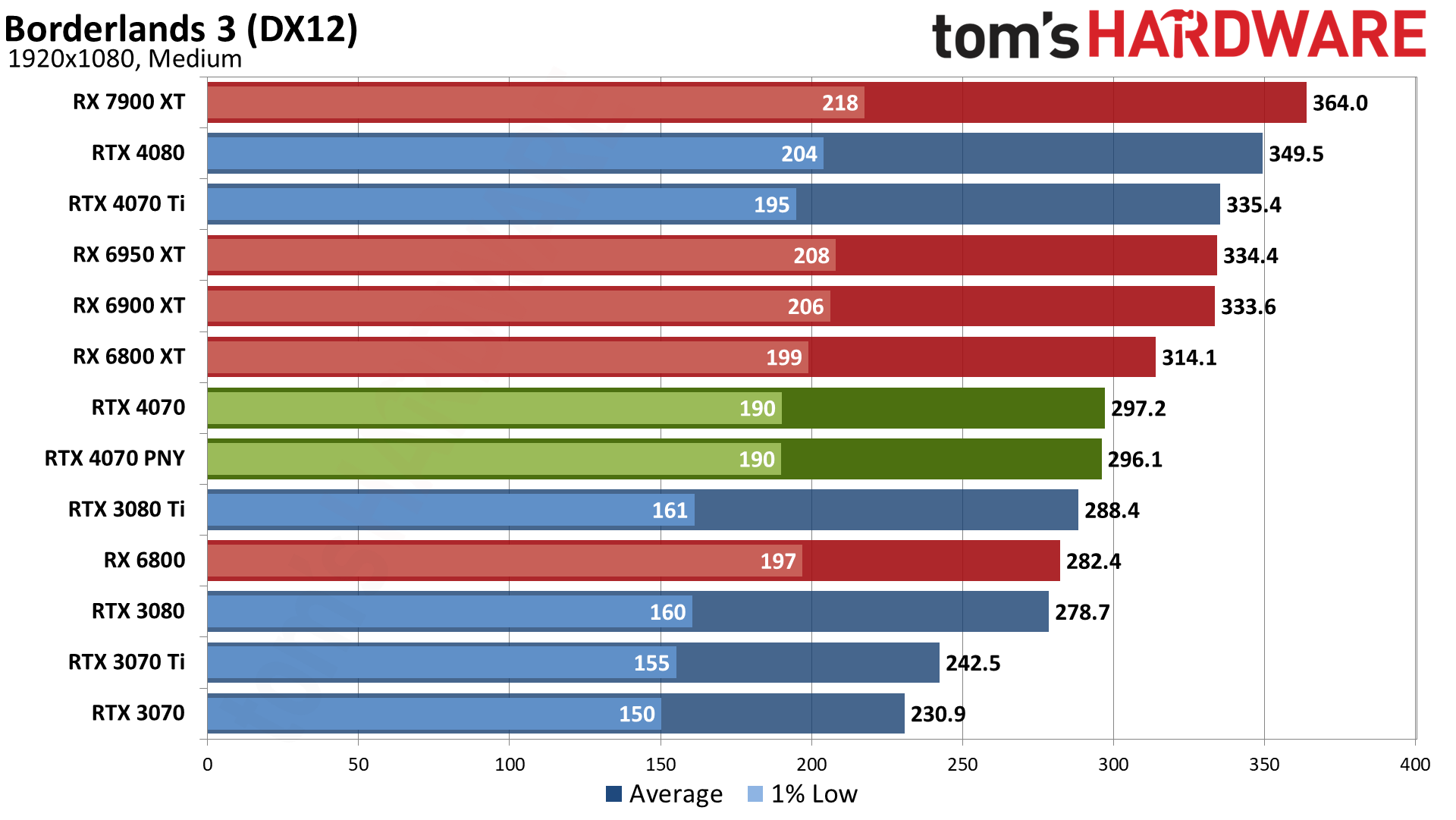
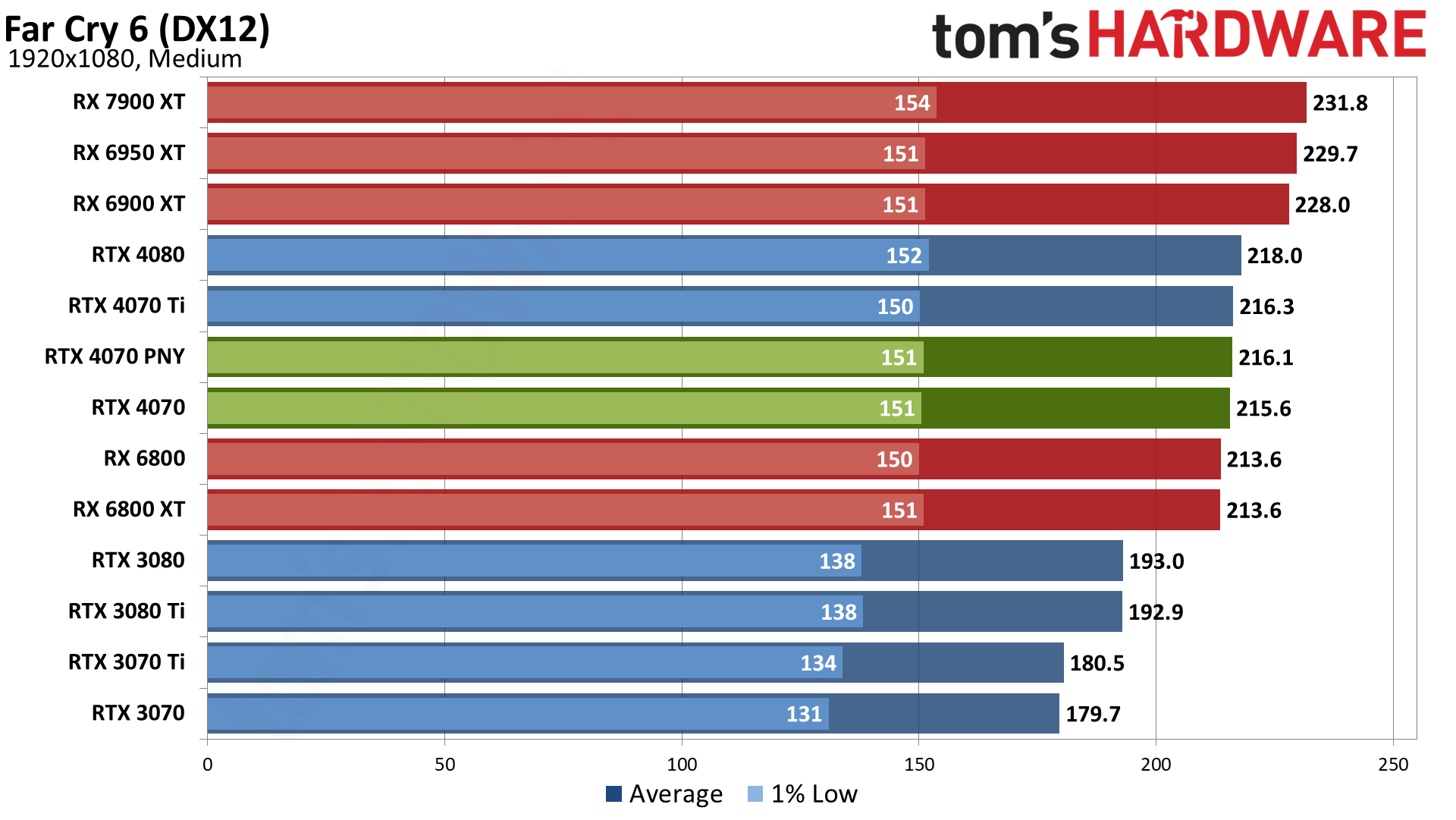
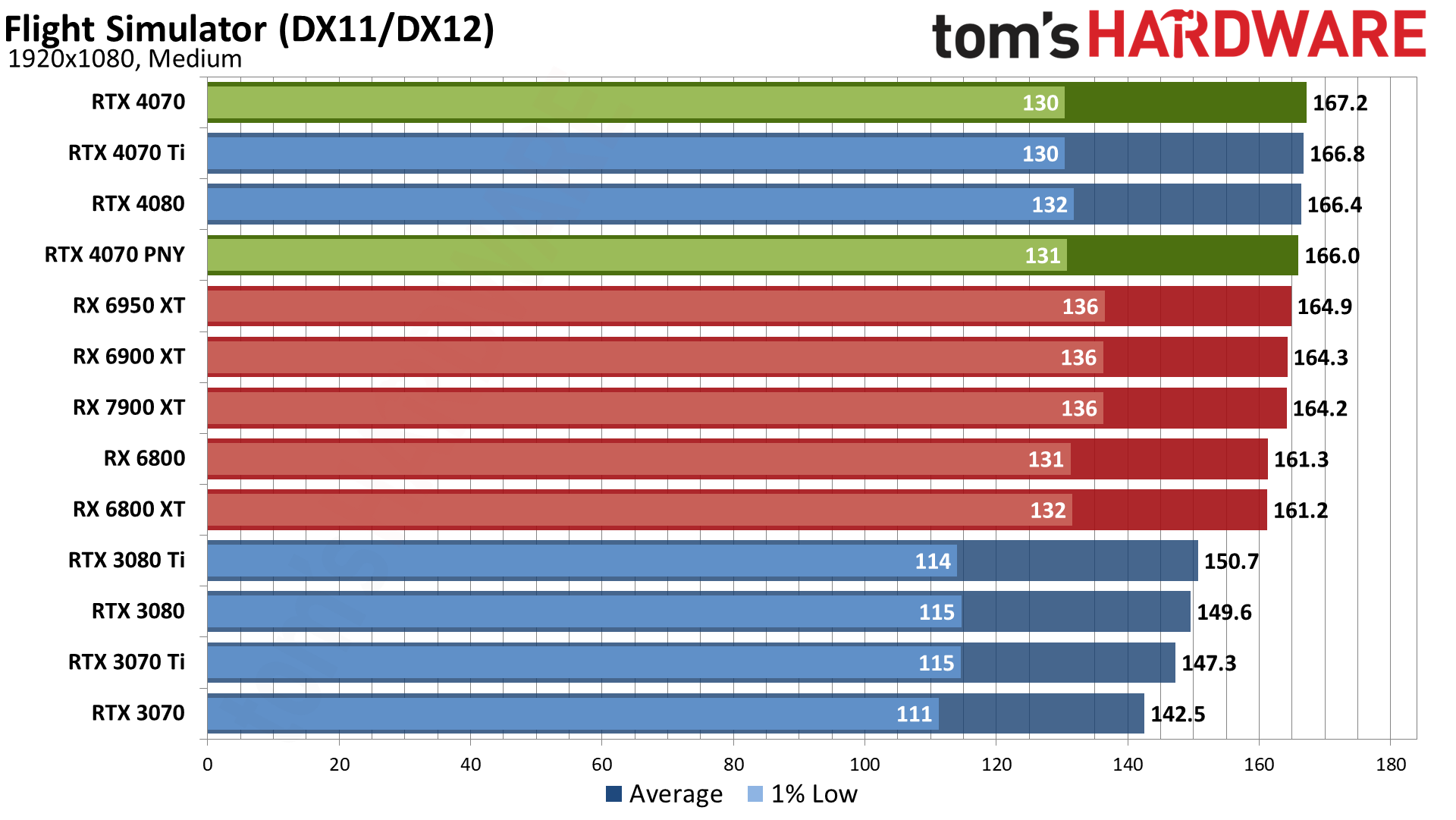
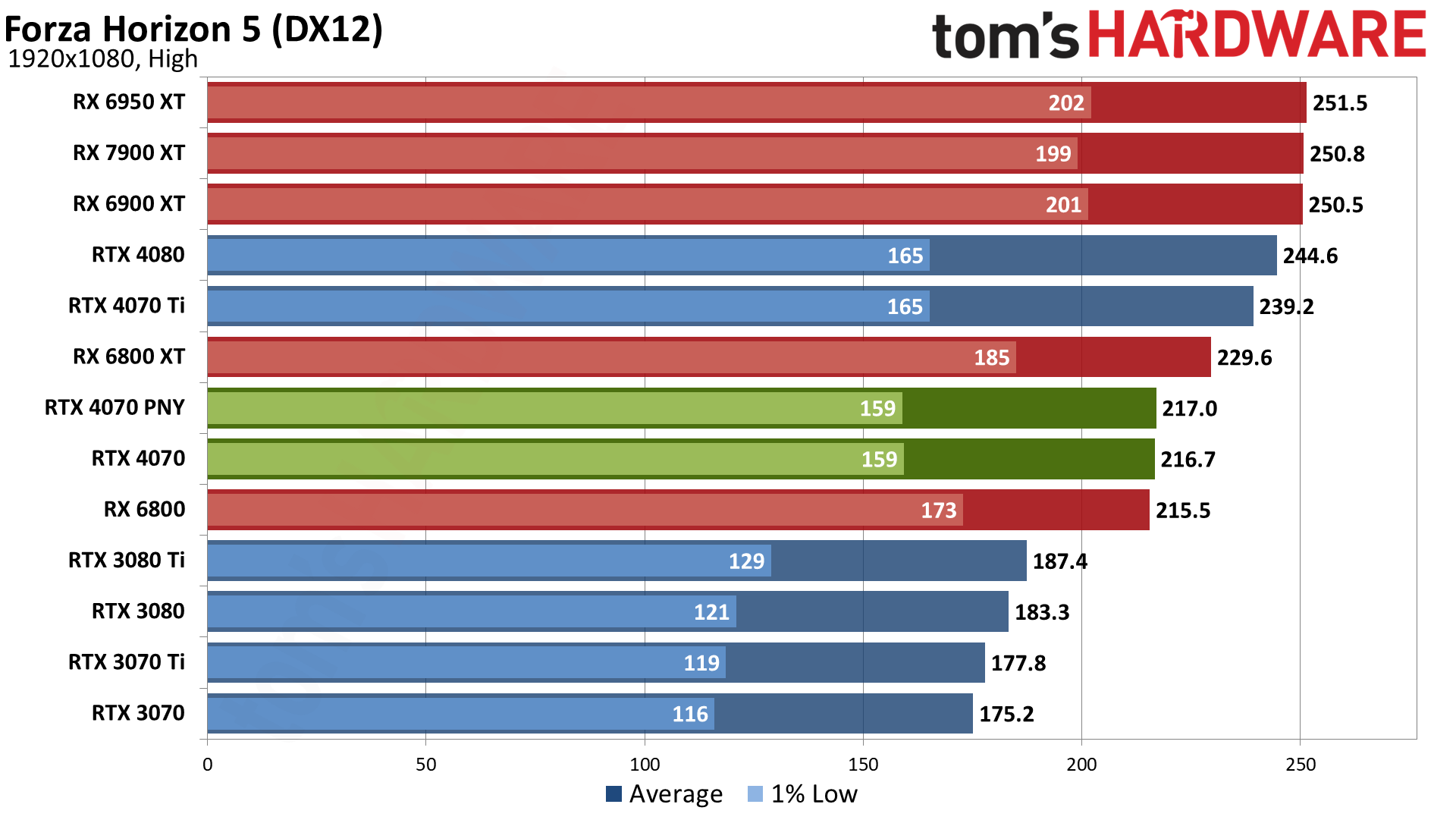
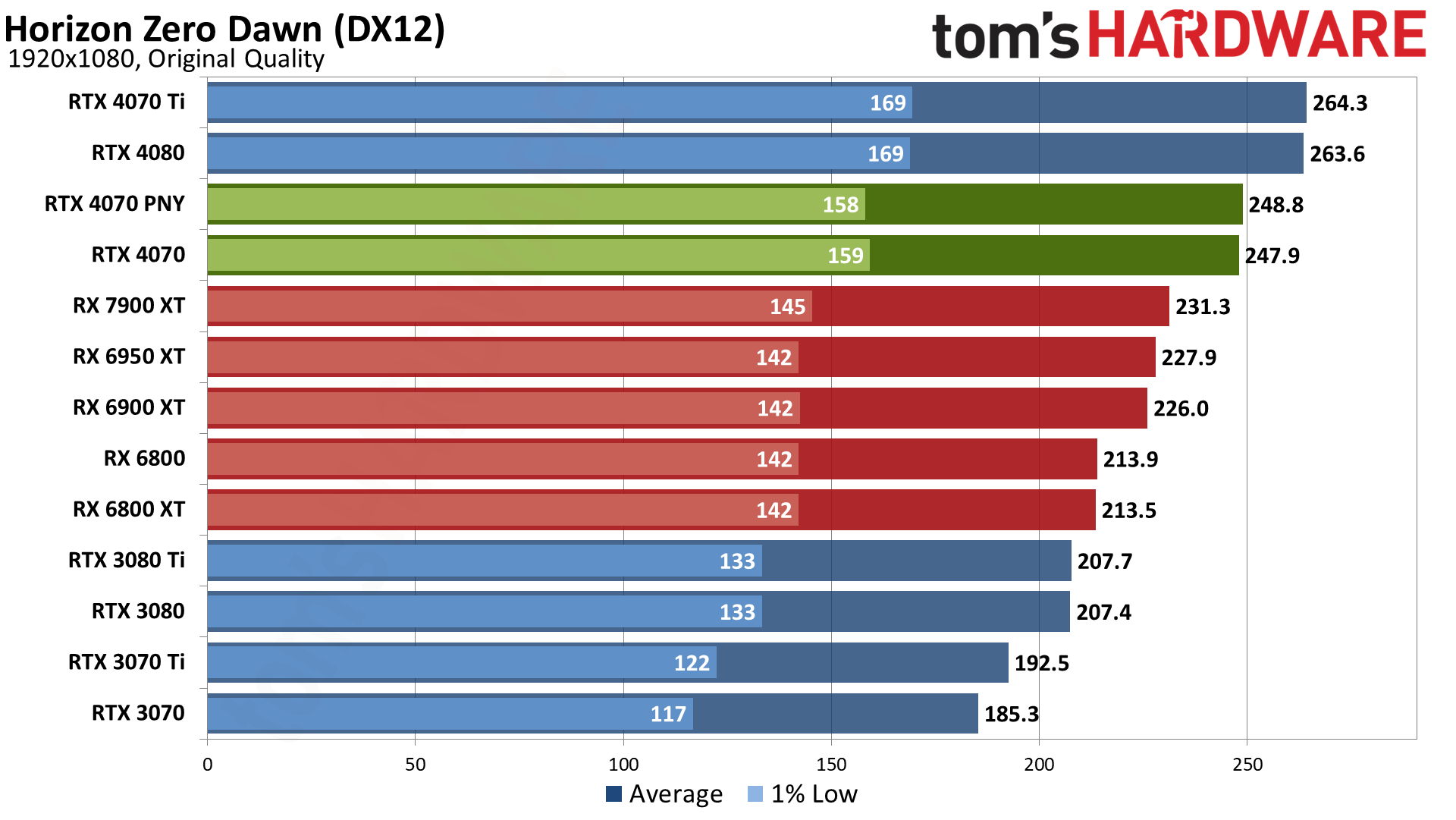
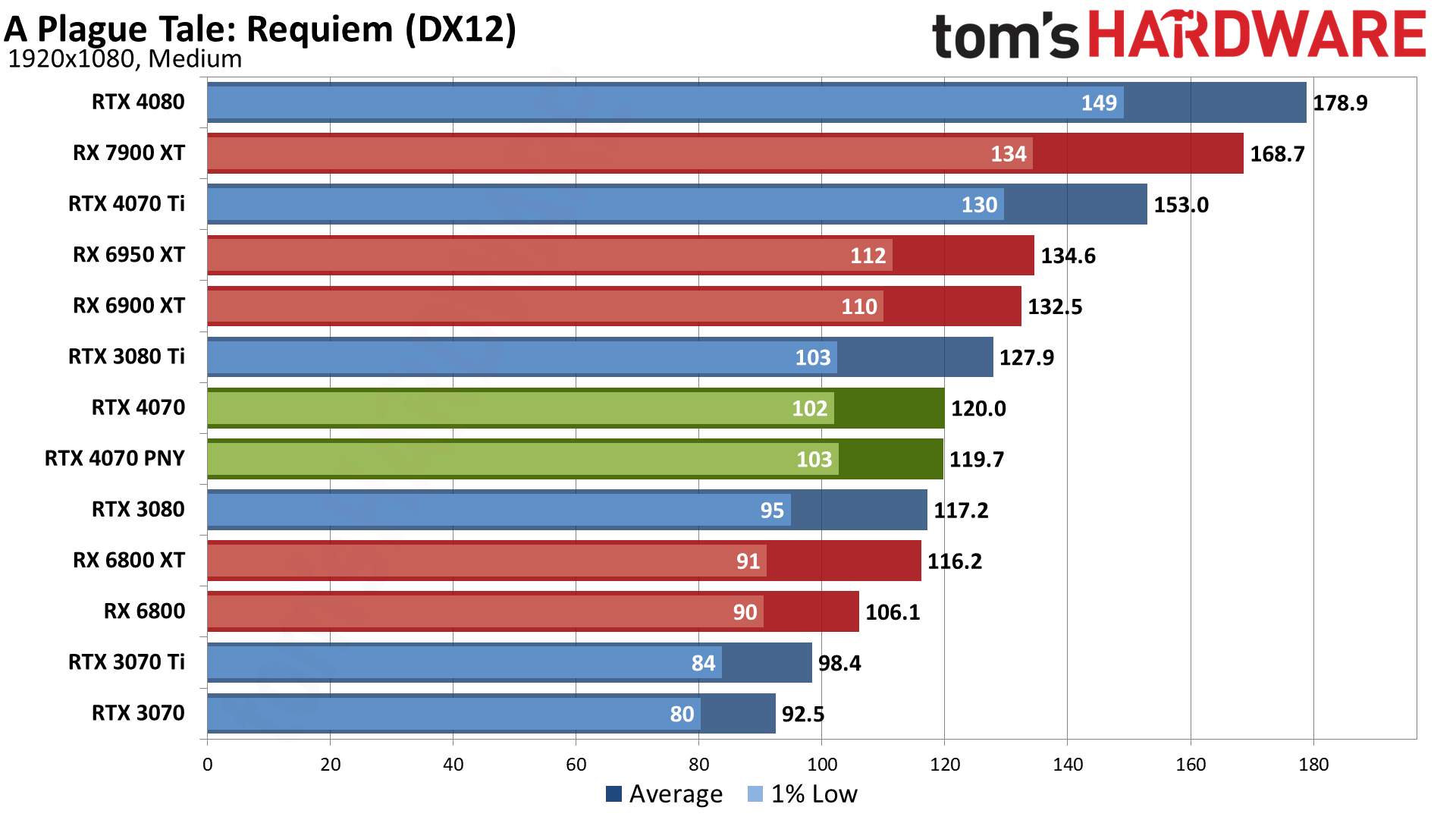
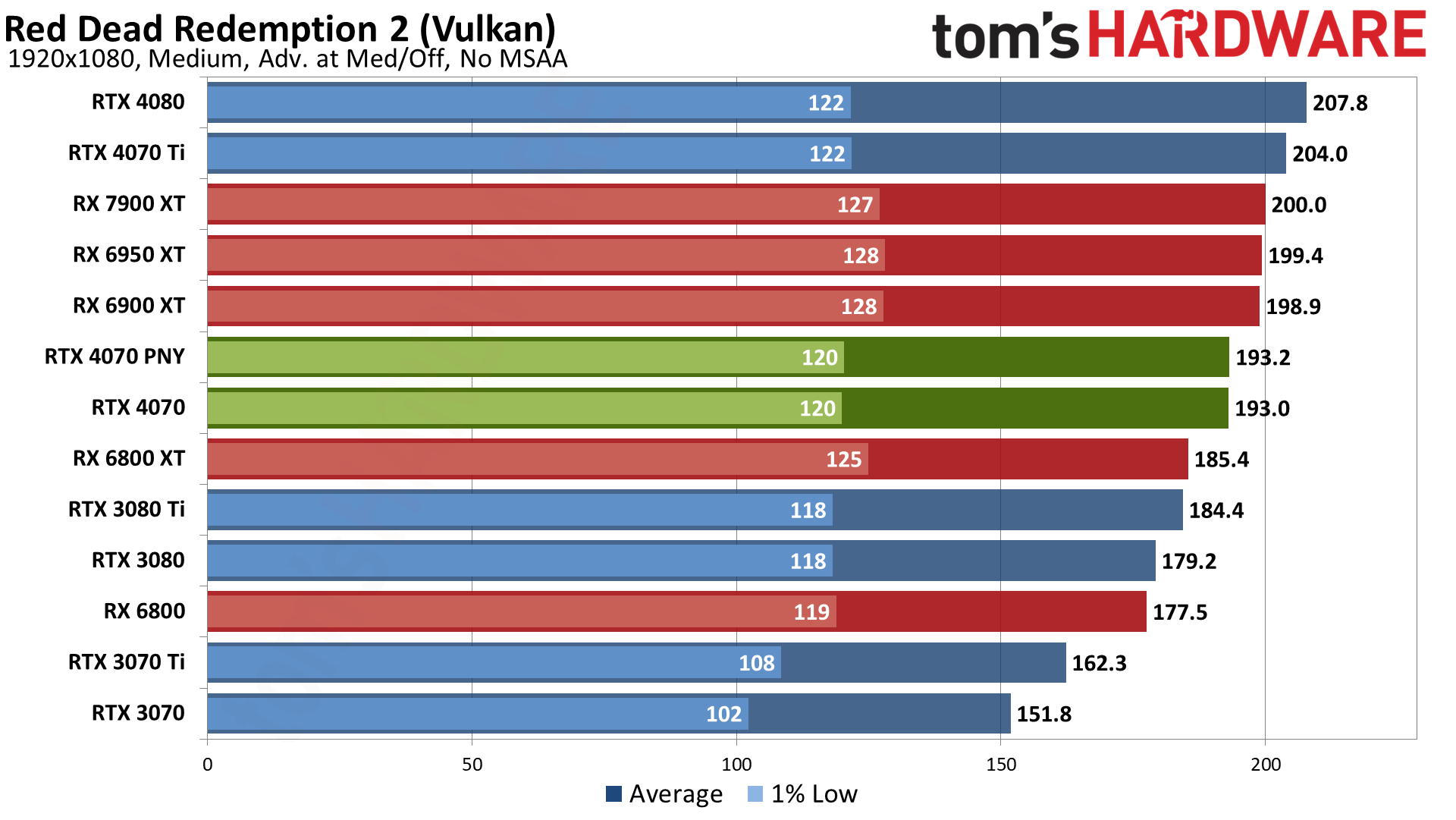
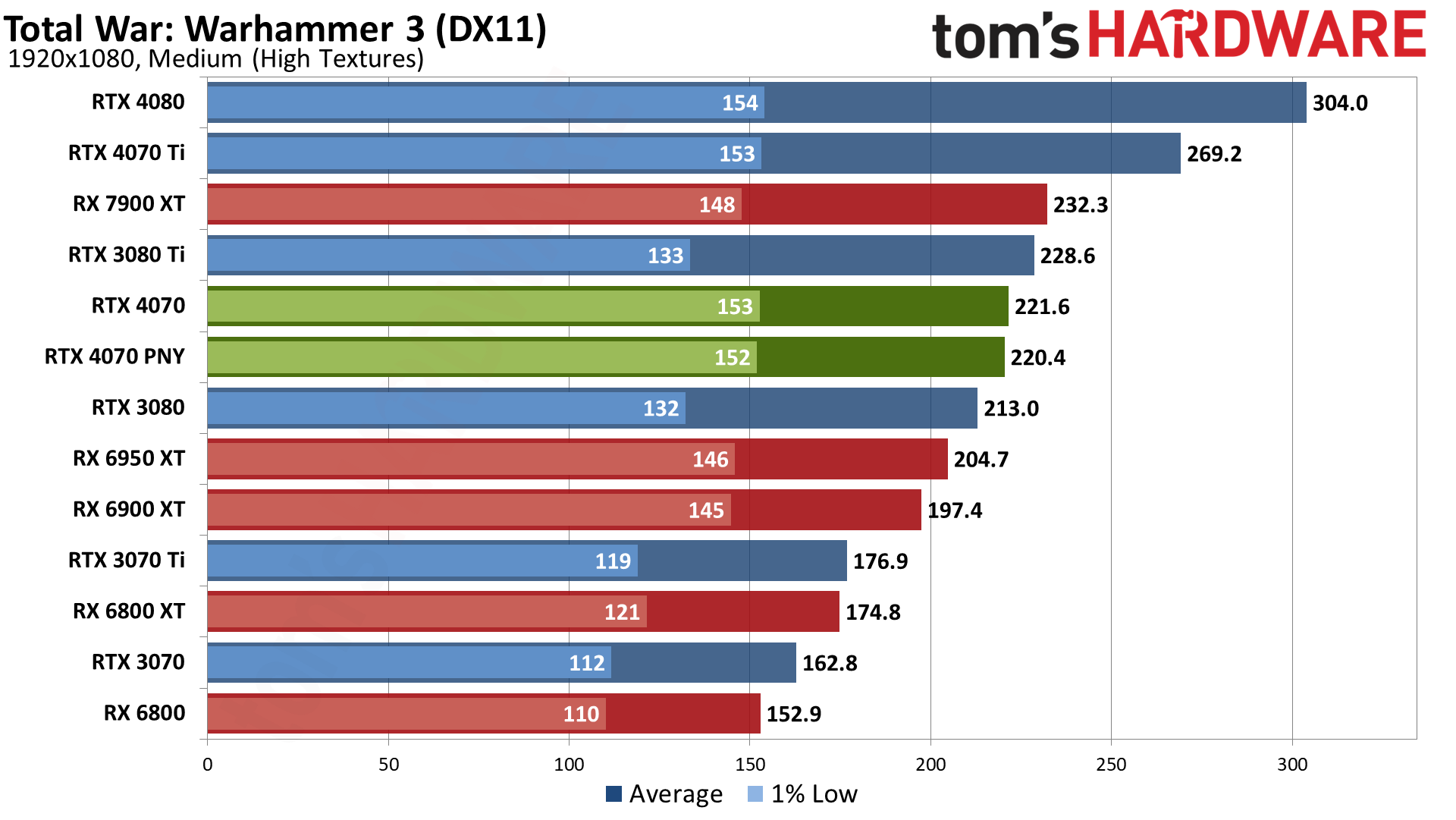
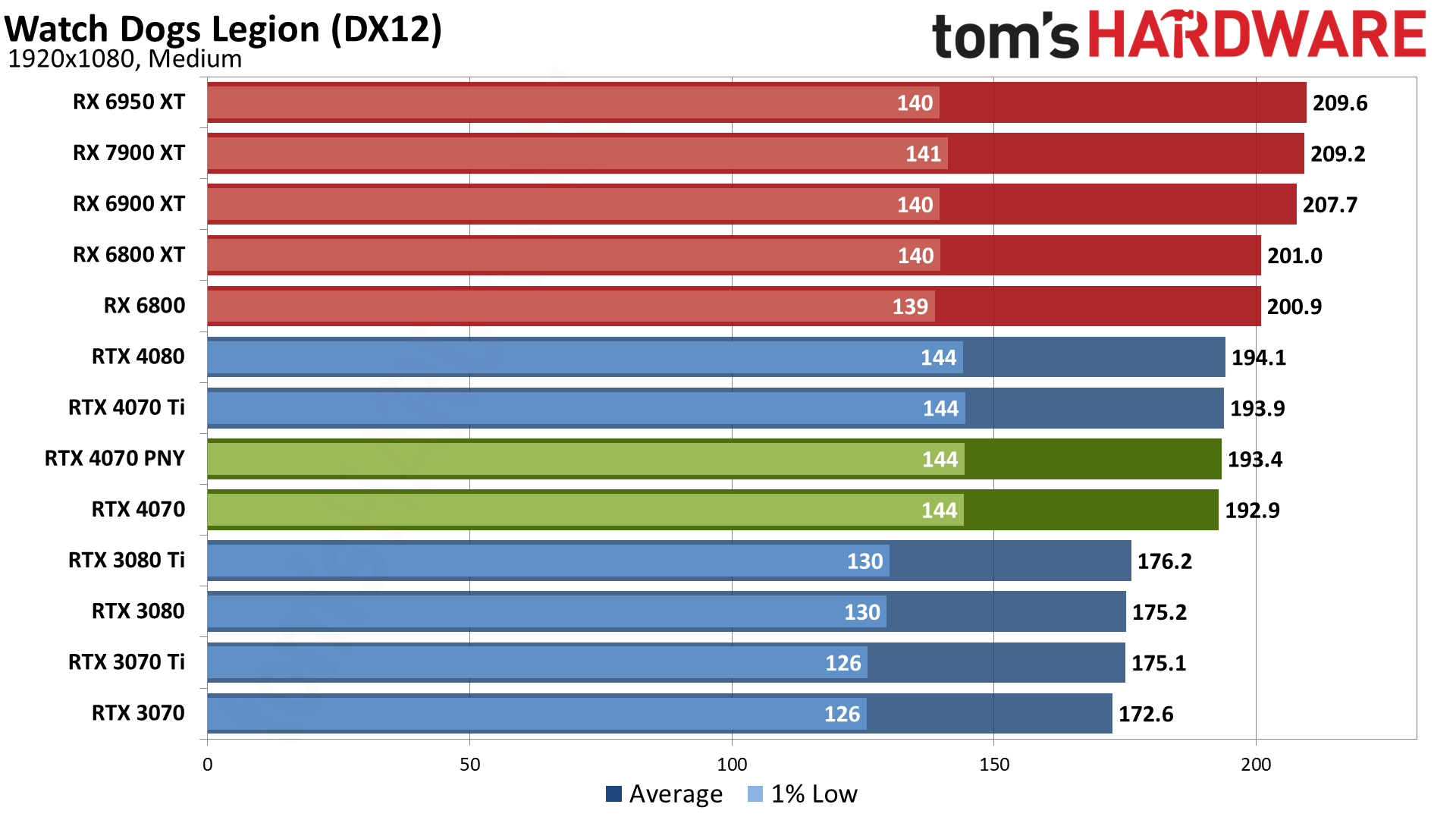
In our rasterization test suite, CPU bottlenecks become far more of a factor. At 1440p ultra, there was an 85% spread between the fastest (4080) and slowest (3070) GPU in our charts. 1080p ultra reduces that spread to 63%, and 1080p medium shows just a 42% gap. That makes sense, as without ray tracing taxing the GPUs, we're more likely to hit other performance limits.
The RTX 4070 gains a couple of slots in going from 1440p to 1080p, suggesting that perhaps the large L2 cache becomes more of a benefit at lower resolutions and settings — that's something we also saw with the previous generation on AMD's RX 6000-series cards. RTX 4070 comes out several percent ahead of the RTX 3080 and also moves ahead of the RX 6800 XT, and basically ties the RTX 3080 Ti. With overclocking, it can even close the gap with the RX 6900 XT.
At 1080p medium, the RTX 3080 Ti drops a few spots and lands behind the RX 6800 XT. Does that mean it's a slower card than AMD's 6800 XT? Well, sure, sometimes, like in low resolution testing with lower quality settings. If you play esports games, maybe that matters more. But really, these 1080p results aren't taxing and even the RTX 3070 averages over 160 fps at our medium settings.
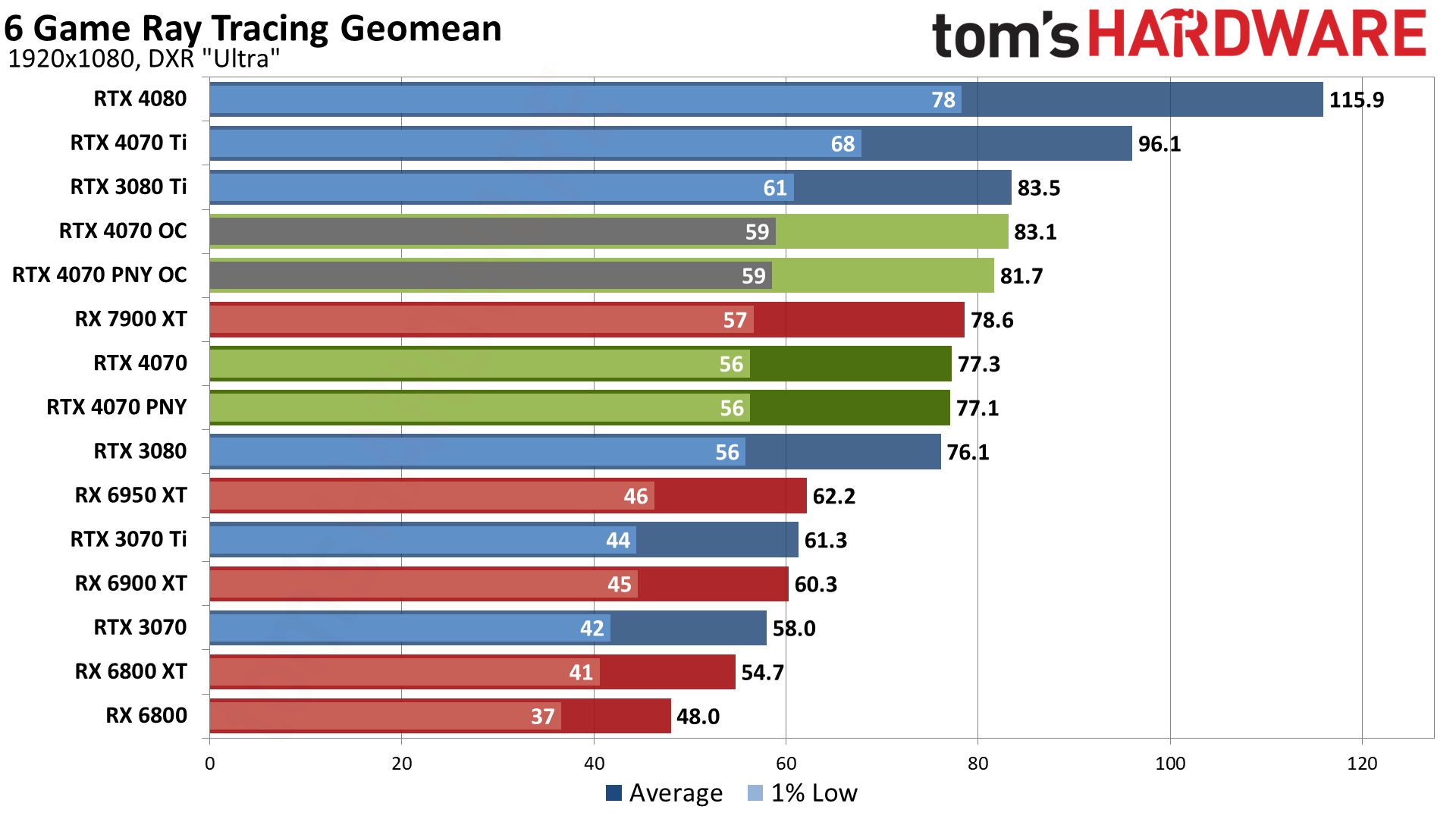
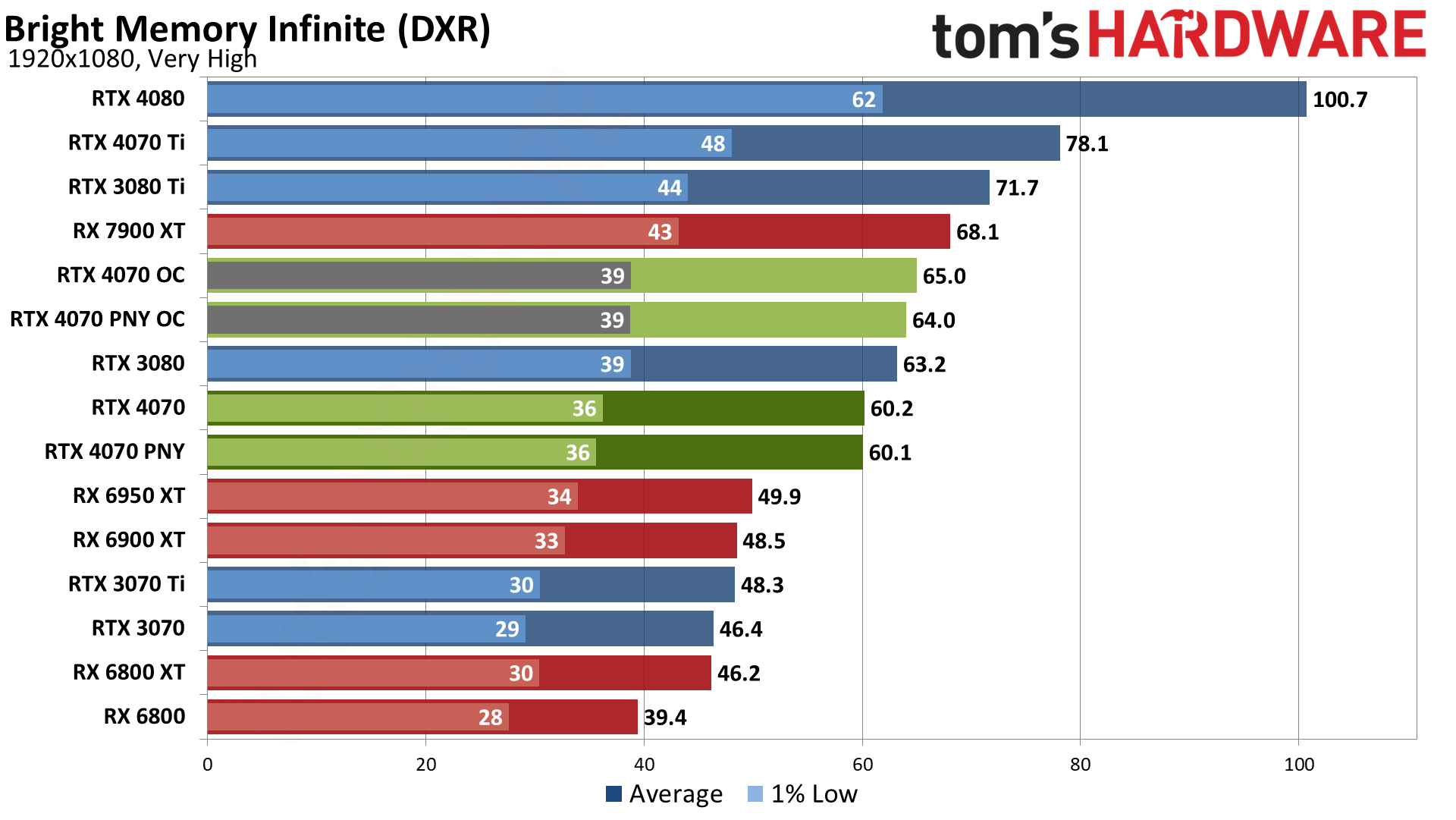
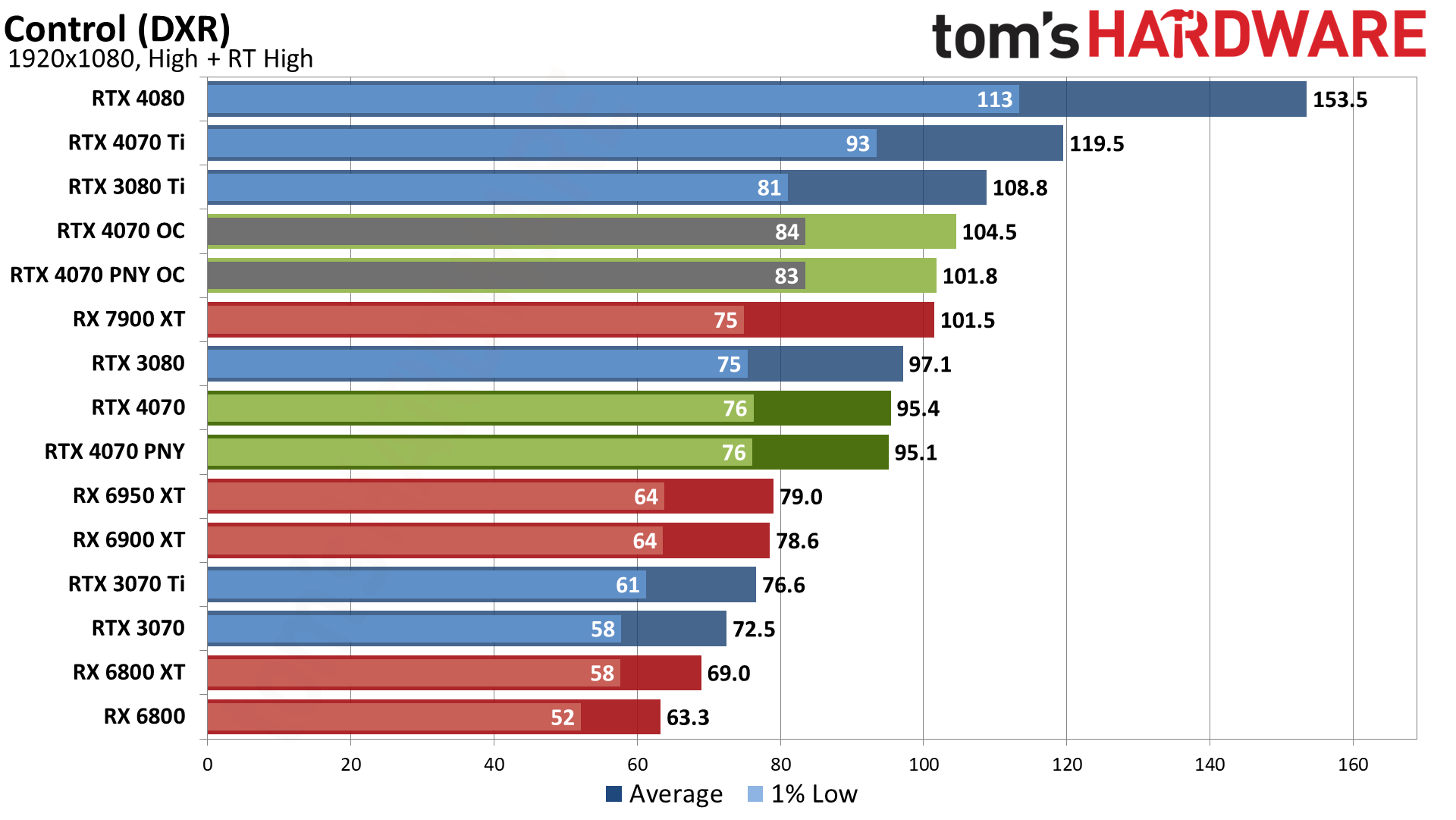
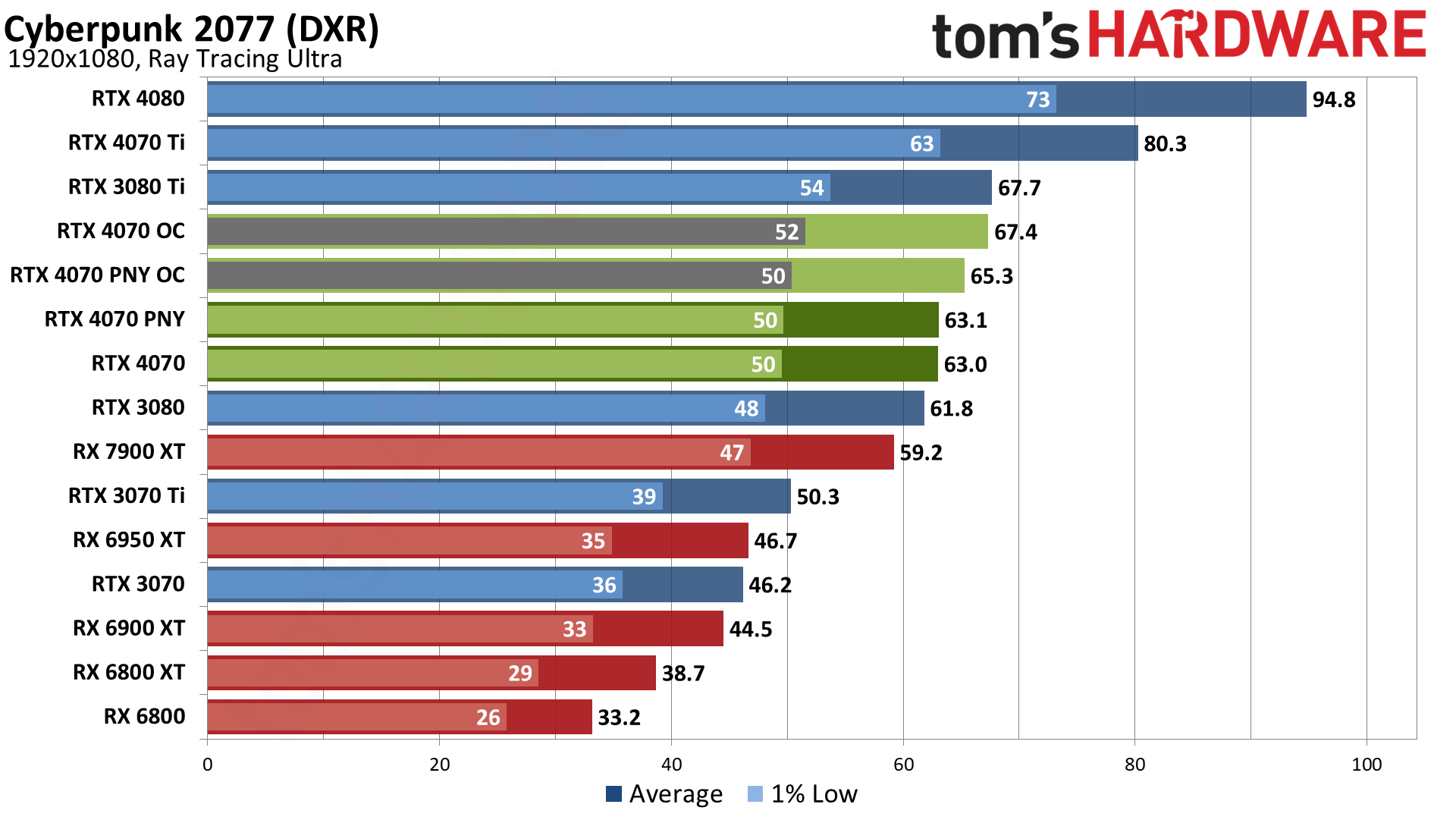
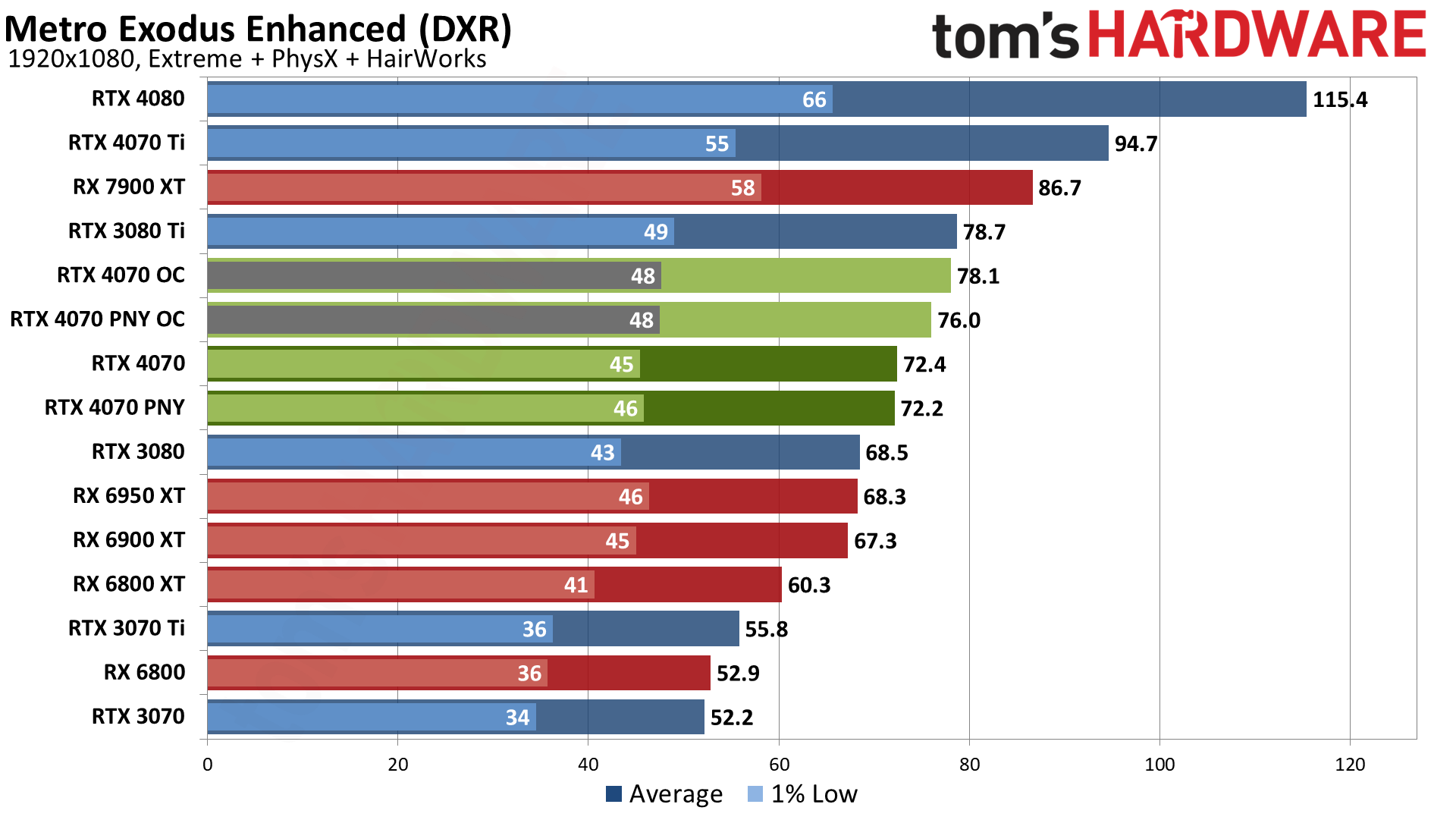
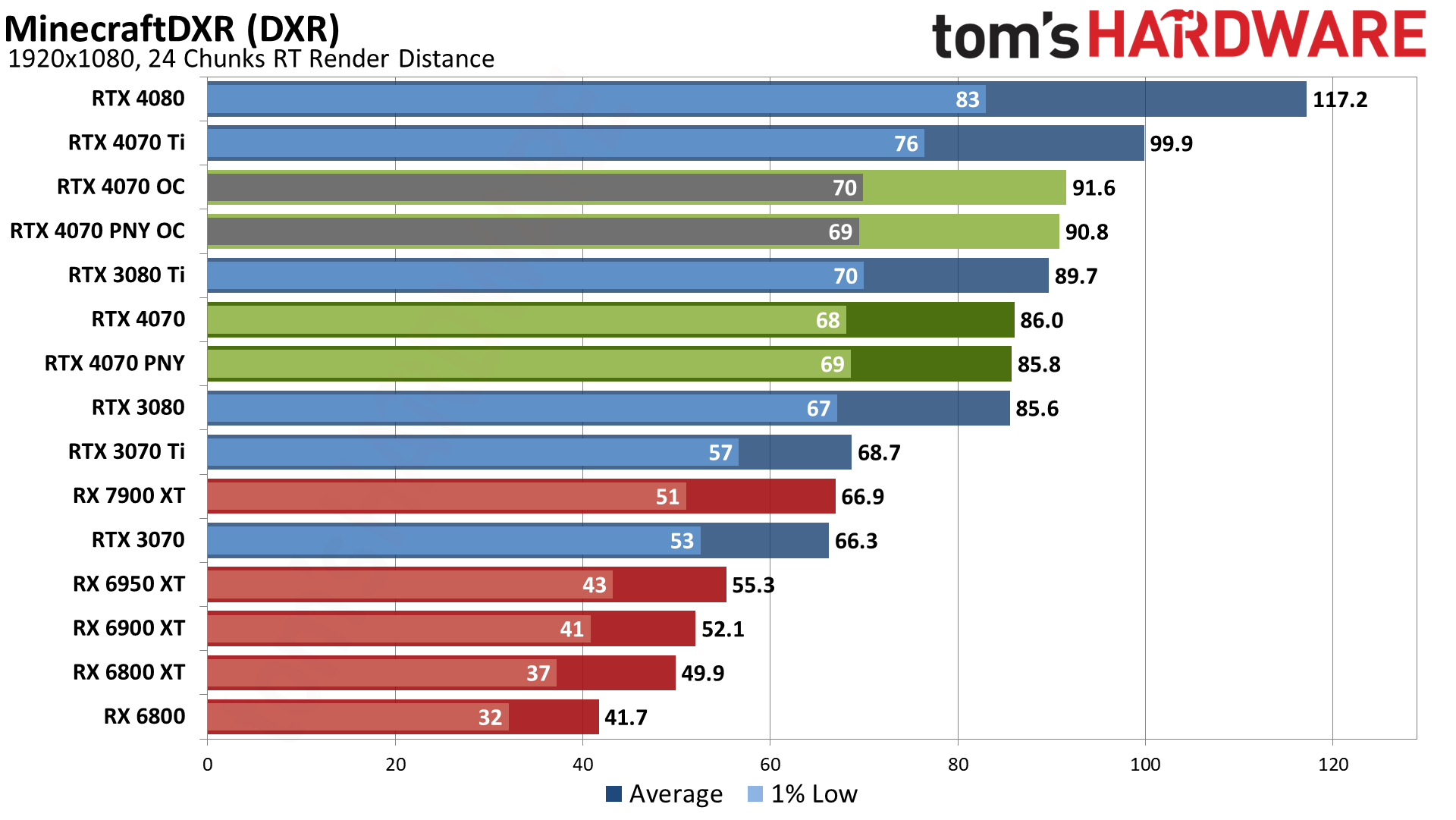
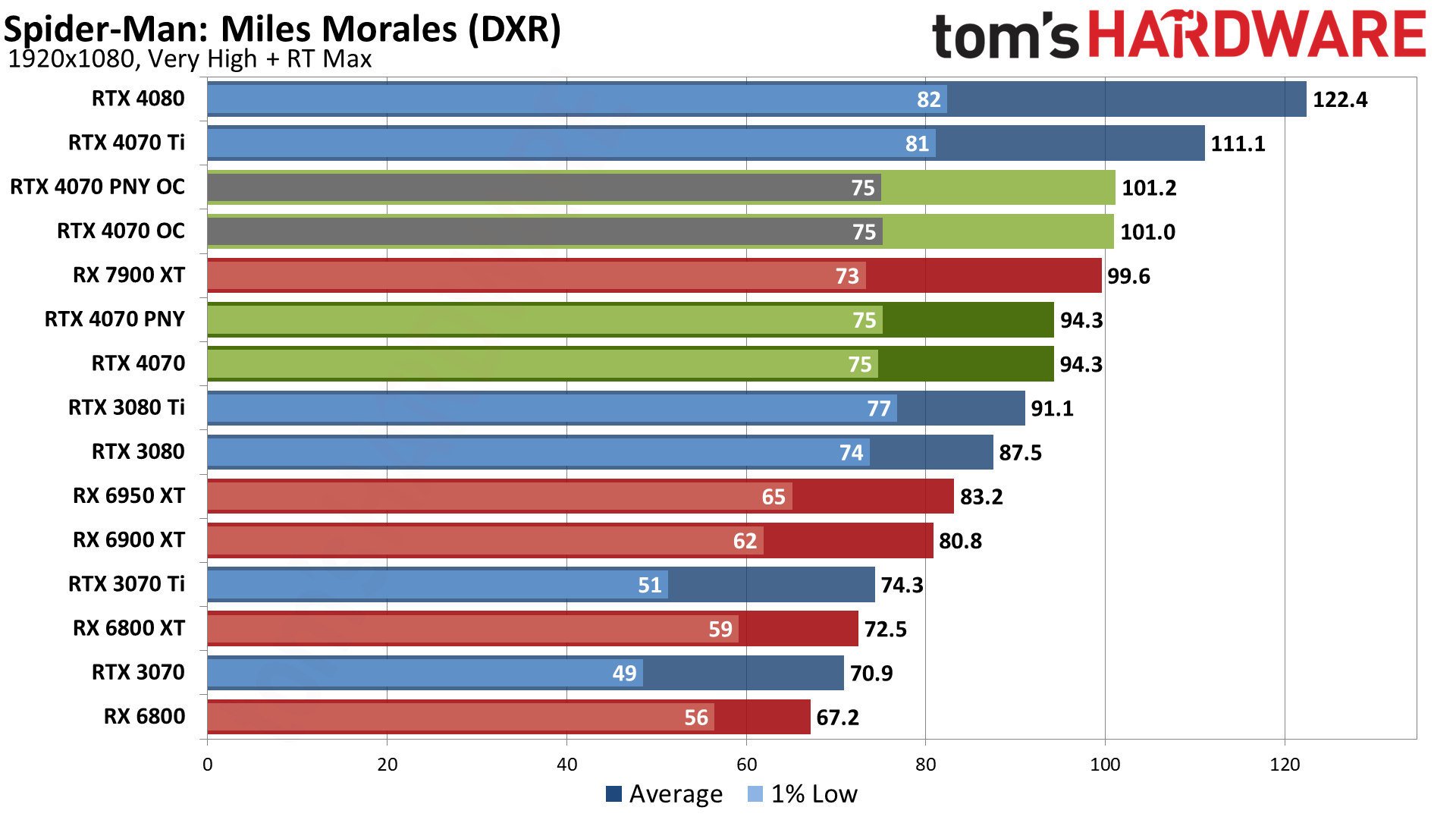
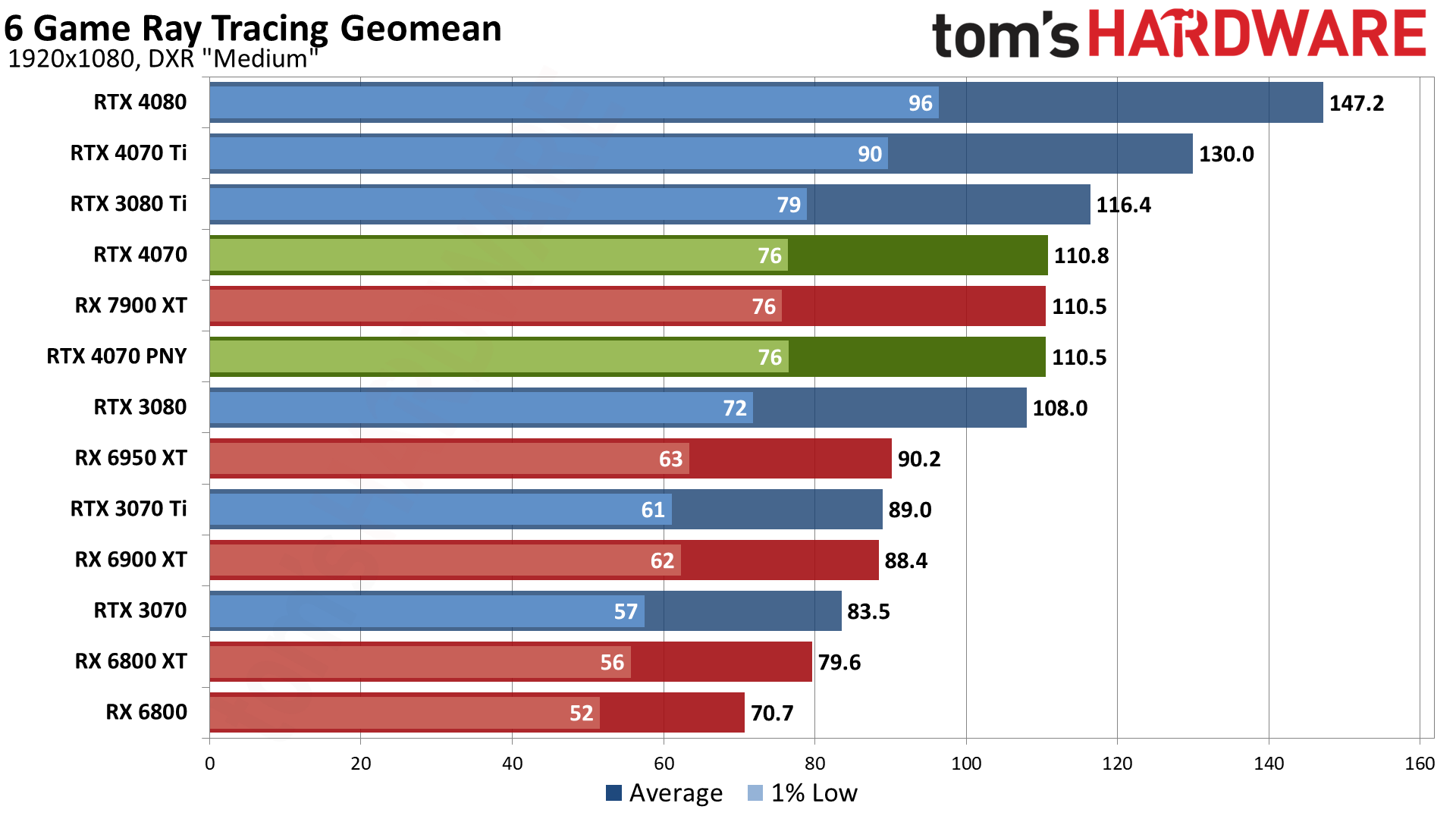
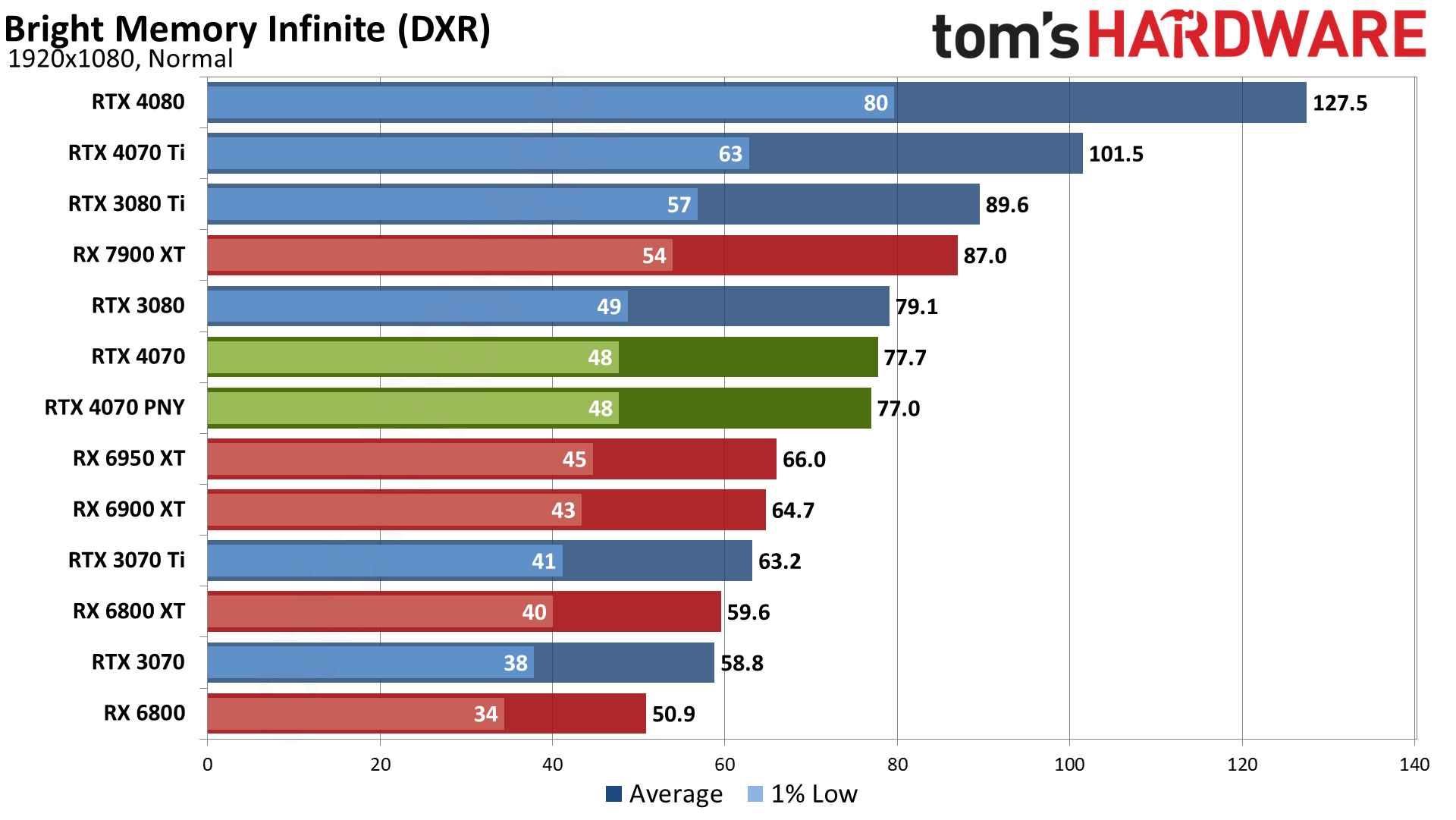
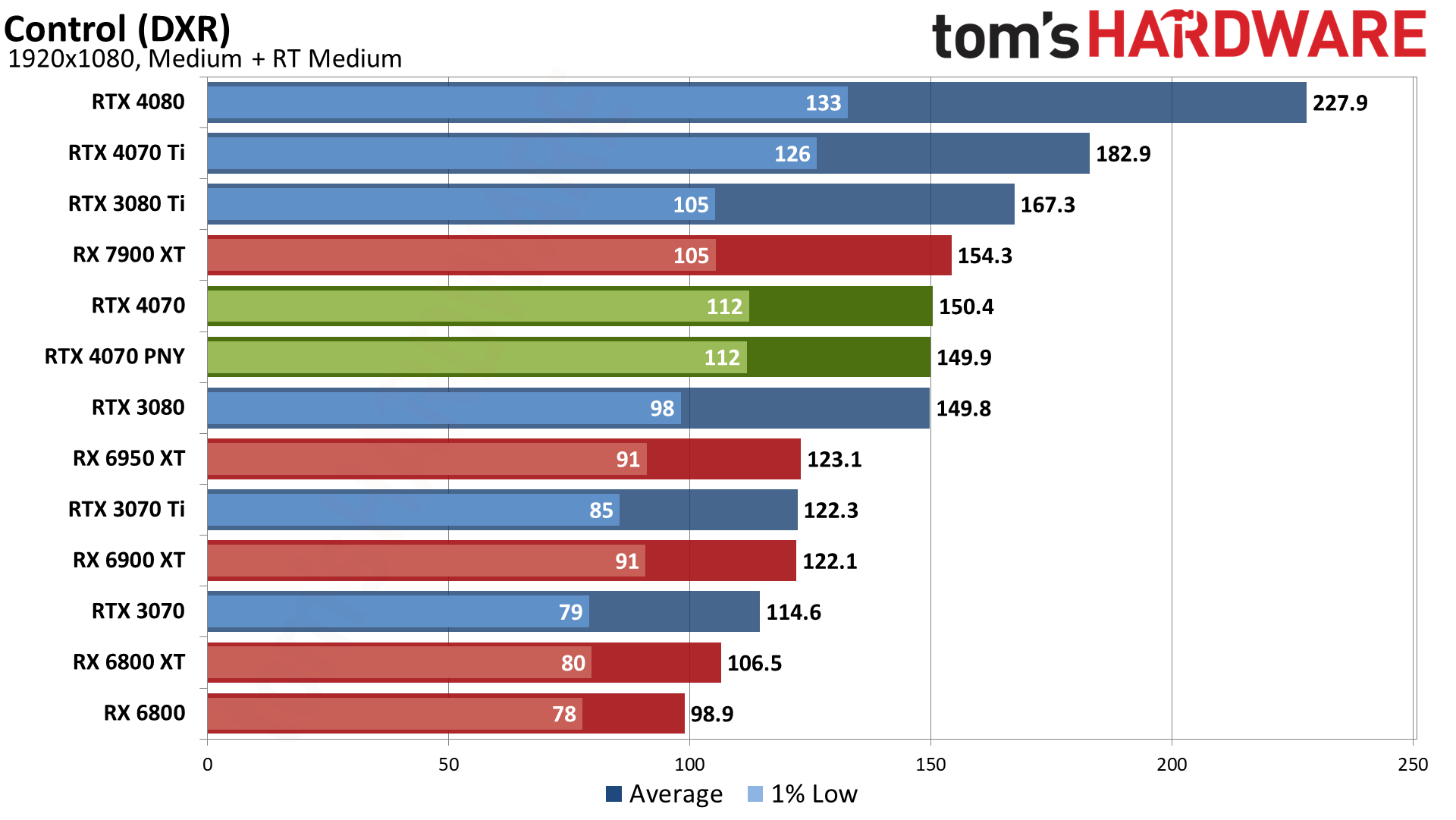
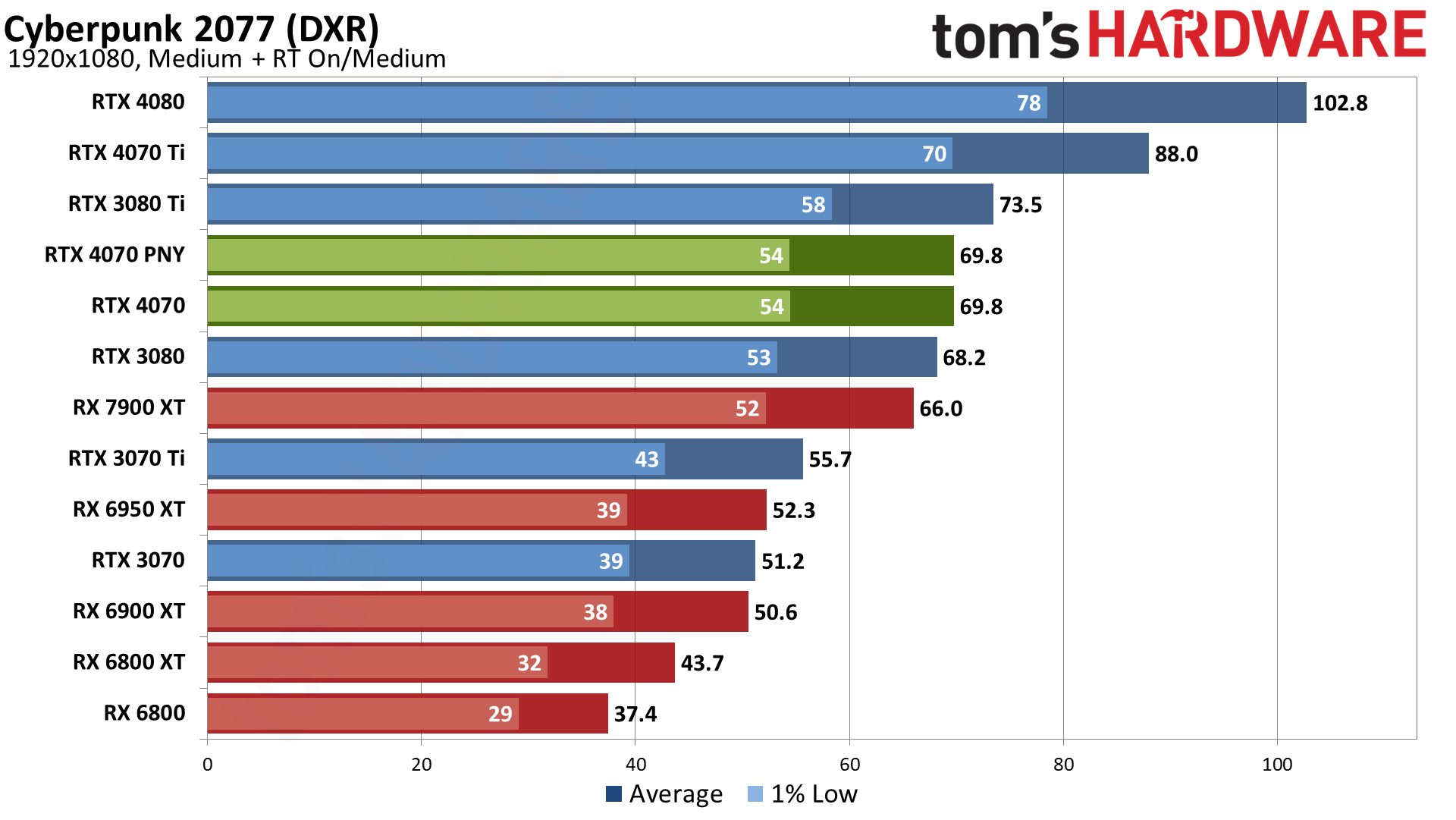
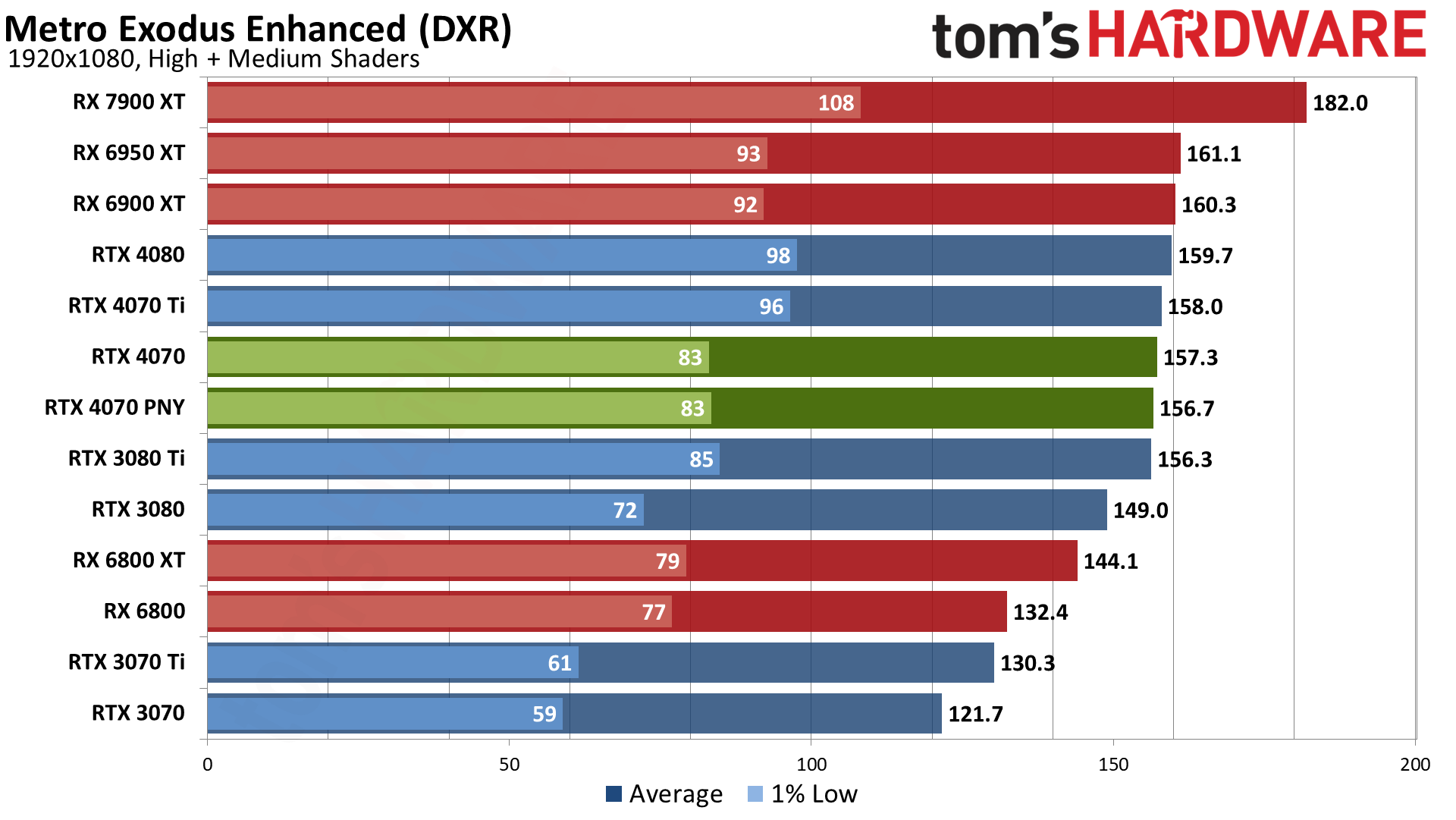
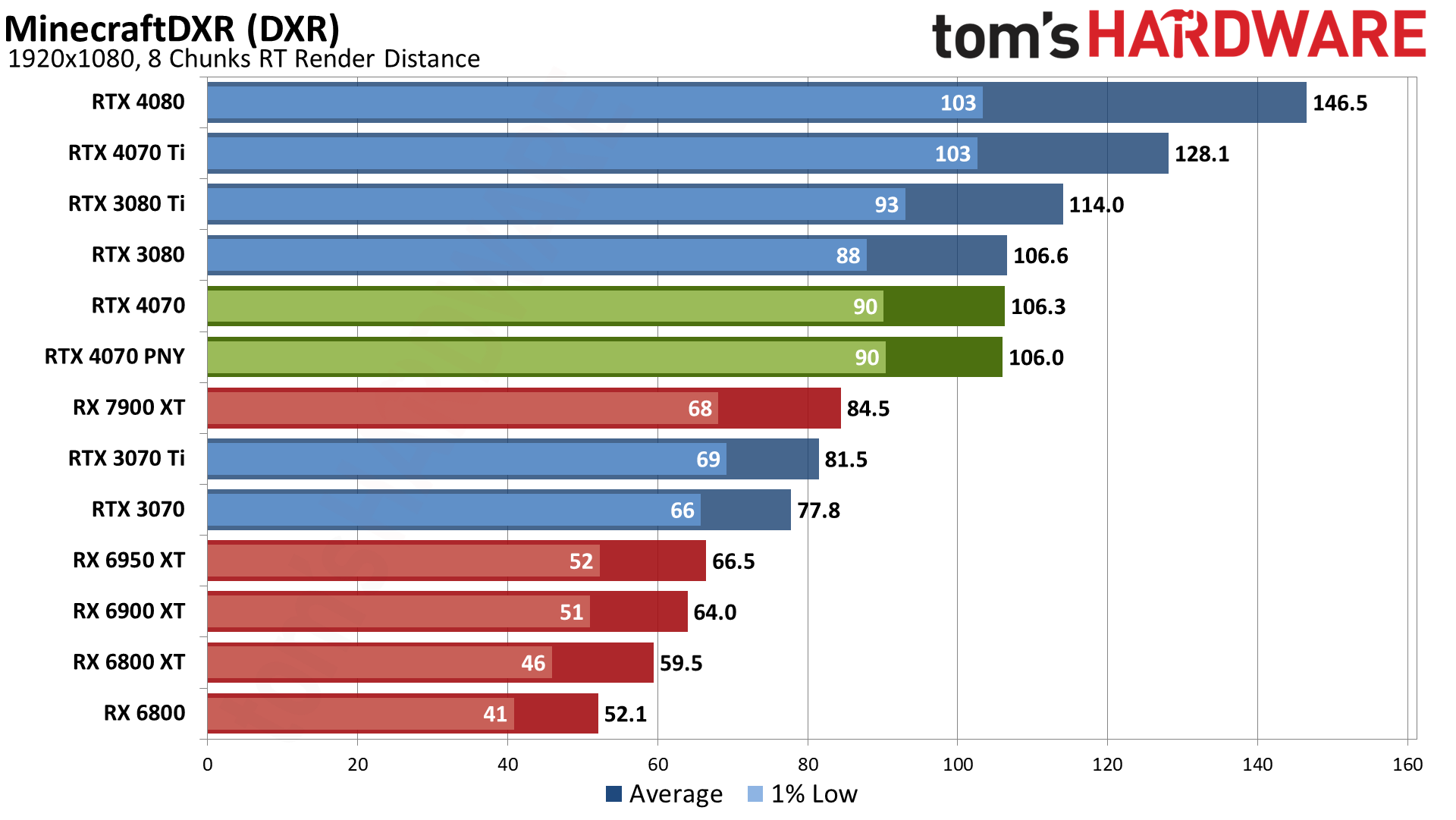
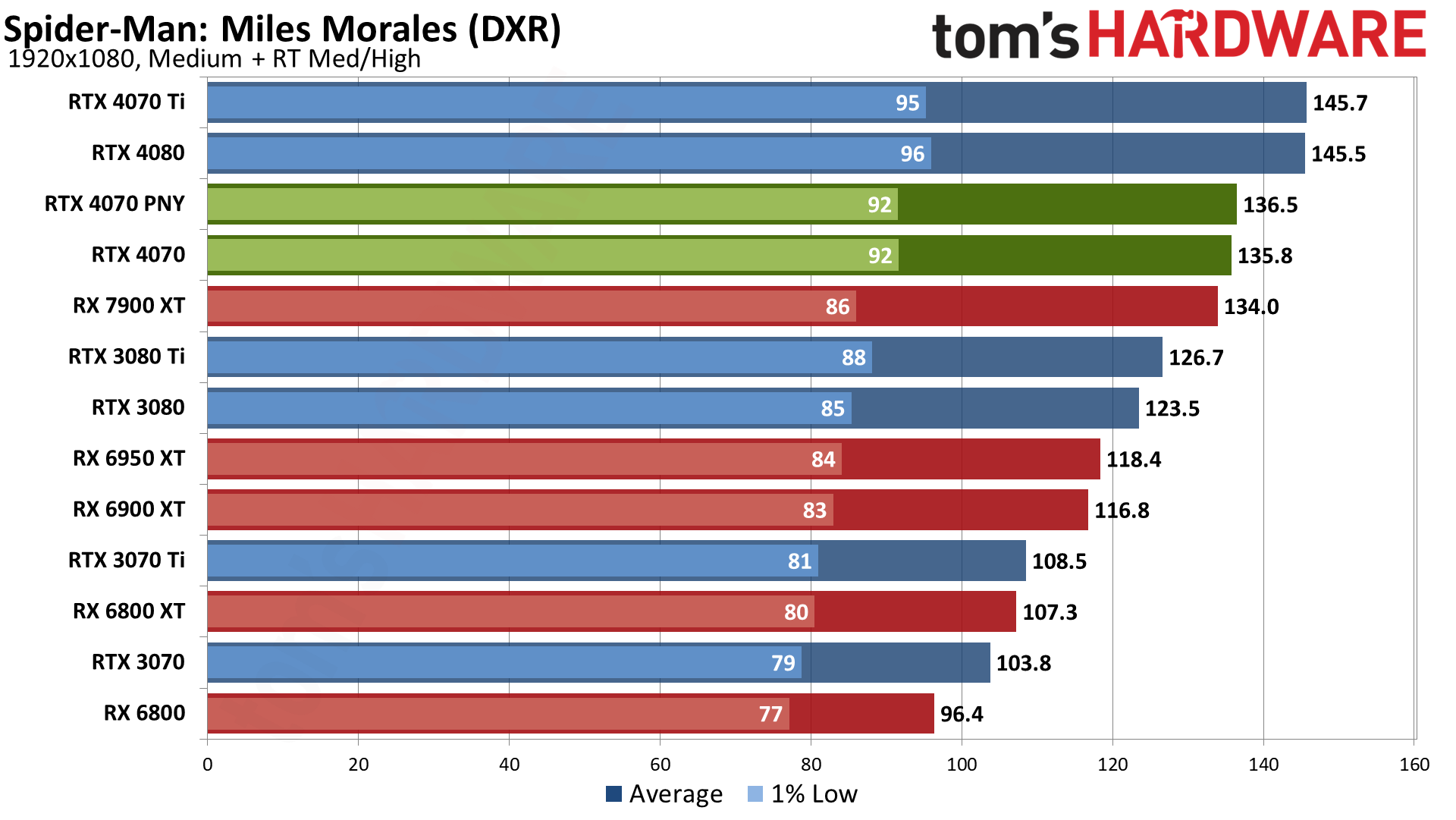
In contrast to our rasterization testing, ray tracing pushes the GPU so hard that it's almost the only thing that matters. At 1440p, the spread from the 4080 to the RTX 3070 (we'll stick with that comparison, even though AMD now has cards at the bottom of the charts) was 113%. At 1080p ultra, the spread drops a bit to 100%, and at 1080p medium it's still 76%. So it's shrinking, but not nearly as fast as with our rasterization tests.
1080p ray tracing effectively puts the RTX 4070 on equal footing with AMD's RX 7900 XT — there's less than a 2% difference between the two GPUs. The same applies to the RTX 3080, where again there's less than a 2% gap (this time in favor of the 4070).
RTX 4070 also outpaces the RTX 3070 Ti by 26% and beats the RTX 3070 by 33%. So the margins are shrinking, as expected, but there are no major changes to discuss. If you only have a 1080p monitor, the RTX 4070 might be borderline overkill in rasterization games, while for complex ray tracing games it's basically the minimum you'd want for a consistent 60 fps without upscaling.
- MORE: Best Graphics Cards
- MORE: GPU Benchmarks and Hierarchy
- MORE: All Graphics Content
Get Tom's Hardware's best news and in-depth reviews, straight to your inbox.
Current page: GeForce RTX 4070: 1080p Gaming Performance
Prev Page GeForce RTX 4070: 1440p Gaming Performance Next Page GeForce RTX 4070: 4K Gaming Performance
Jarred Walton is a senior editor at Tom's Hardware focusing on everything GPU. He has been working as a tech journalist since 2004, writing for AnandTech, Maximum PC, and PC Gamer. From the first S3 Virge '3D decelerators' to today's GPUs, Jarred keeps up with all the latest graphics trends and is the one to ask about game performance.
-
Elusive Ruse If there were no previous gen high-end GPUs available this would be a good buy but at this price you can just buy a new AIB 6950XT.Reply -
PlaneInTheSky So it offers similar performance to the 3080 and launches at an only slightly lower MSRP.Reply
Going by price leaks of some AIB, we will be lucky if we're not going backwards in price / performance.
In 2 years time since the 3080, performance per $ has barely increased.
The 12GB VRAM is depressing too, considering a RX 6950XT offers 16GB for the same price.
DLSS 3.0 doesn't interest me in the slightest since it's just glorified frame interpolation that does nothing to help responsiveness, it actually adds lag.
It's hard to get excited about PC Gaming when it is in such a terrible state. -
PlaneInTheSky In Europe, price/performance of Nvidia GPU generation-generation has basically flatlined now.Reply
3080 MSRP: €699
4070 MSRP: €669
That's the state PC gaming is in now. In 2 years time, no improvement in price/performance.
It is a good example of what happens in a duopoly market without competition. -
peachpuff Reply
That's really sad, how many gold plated leather jackets does jensen really need?PlaneInTheSky said:In 2 years time since the 3080, performance per $ has barely increased.
-
DSzymborski The 4070 is releasing at a significantly lower price than the 3080. $699 in September 2020 is $810 in March 2023 dollars. $200 over the 4070 MSRP of $599 is a significant amount. Now, few 4070s will be available at $599, but then few 3080s were actually available at $699 (which, again, is $810 in current dollars).Reply
The 3070 was released at an MSRP of $499, which is $578 in March 2023 dollars. -
Exphius_Mortum Title of the article needs a little adjustment, it should read as followsReply
Nvidia GeForce RTX 4070 Review: Mainstream Ada Arrives at Enthusiast Pricing -
Elusive Ruse @JarredWaltonGPU thanks for the review, I saw that you retested all the GPUs with recent drivers which must have taken a huge effort (y)Reply
PS: Are you planning to add or replace some older titles with new games for future benchmarks? -
btmedic04 Hey look, a 1.65% performance improvement per 1% more money card when compared to the 3070. It's disappointing that's where we are at with gpus these daysReply -
healthy Pro-teen Reply
A duopoly at best, it's almost a monopoly. AMD will probably undercut it by a small amount, get middling reviews and then heavily discount the GPU only when most people have already decided on the 4070. 6950XT is discounted right now and offers better value and the average gamer doesn't know it, so 4070 will sell regardless.PlaneInTheSky said:In Europe, price/performance of Nvidia GPU generation-generation has basically flatlined now.
3080 MSRP: €699
4070 MSRP: €669
That's the state PC gaming is in now. In 2 years time, no improvement in price/performance.
It is a good example of what happens in a duopoly market without competition.
